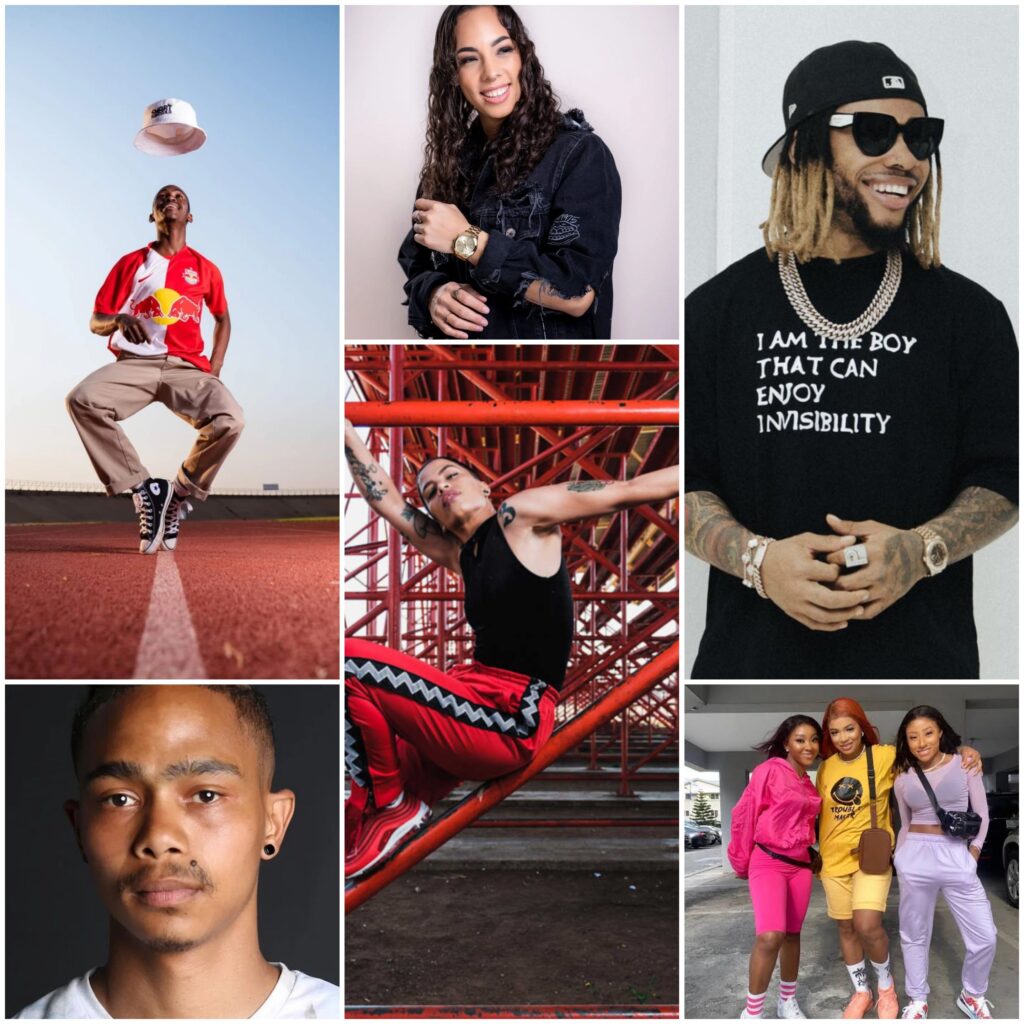
Most certainly and profoundly so, a new wave of African dancers are currently making global moves. With Athleticism, fresh styles and bold energy, this new wave of dancers with their raves of plethora dance styles are transforming how the world views DANCE.
Evidently speaking, you don’t need to scroll too far on instagram before landing on an African dancegrammer (African dancers on Instagram) who makes you STOP, DOUBLE-TAP, and maybe even try the moves yourself with varying success.
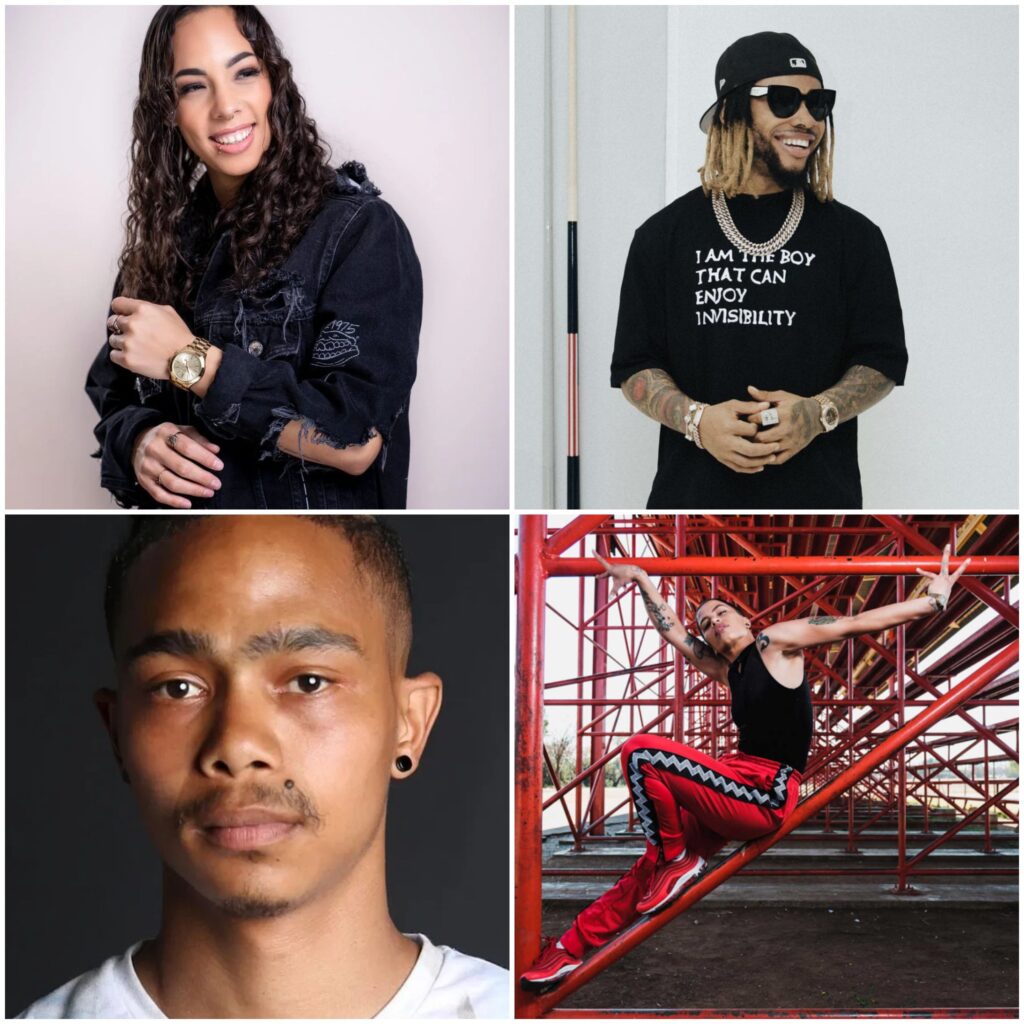
From street corners in SOWETO, and LAGOS to Studios in Nairobi and Accra, the continent’s dancers are shaping global trends “one reel at a time”. They’re not just keeping with the beat; they are the BEATS.
1) Man Like B
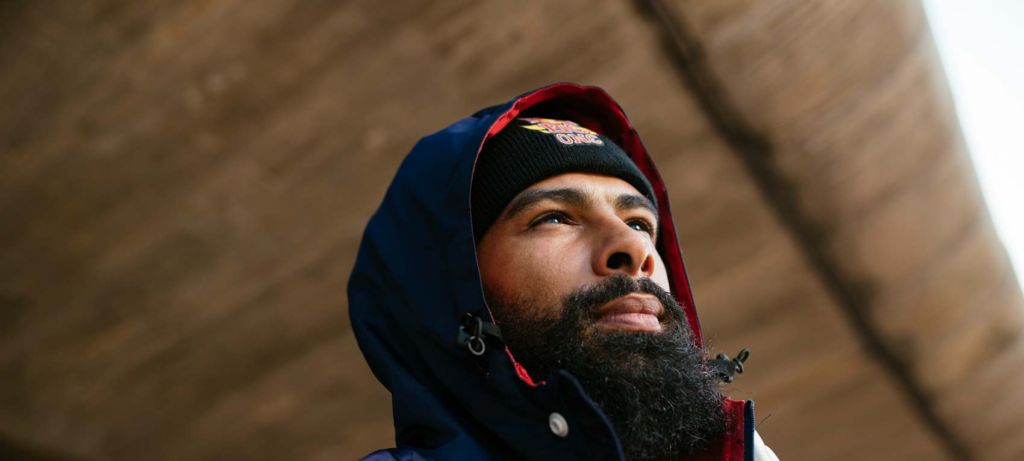
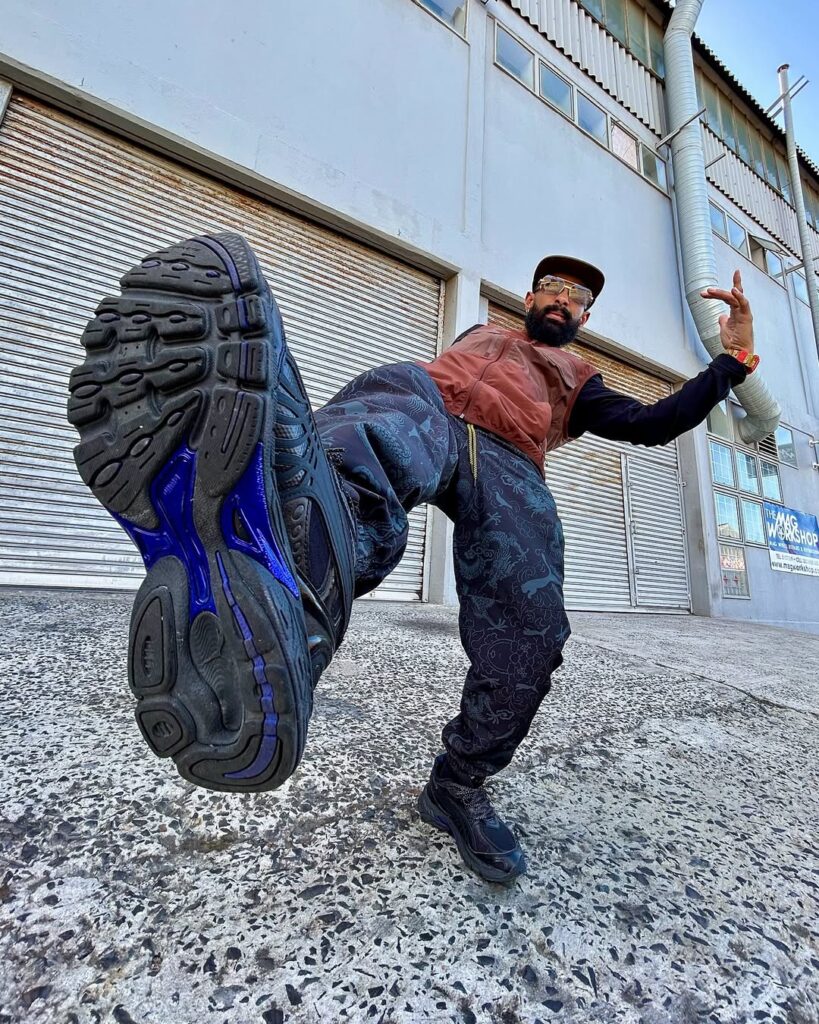
Man Like B is somewhat of an urban legend. Now a 4 X Red Bull Bc One South Africa Champion, he stands his ground firmly against opponents and fires back with sure-footed moves that makes it obvious that he’s been at it for a while. A member of the incendiary Cape Town Crews such as ‘’Concrete Apostles’’, ‘’Brasse Vannie Kaap’’, and ‘’Hand Break Turn’’, he carries the kind of battle-hardened energy you only get from surviving and thriving in the pit. Whether on linoleum floors at high-end international dance competitions or in dusty lots on the Cape Flats, his style blends raw attitude with Cape Towns layered hip-hop heritage.
Learn about the three time Red Bull BC One South Africa champion’s journey
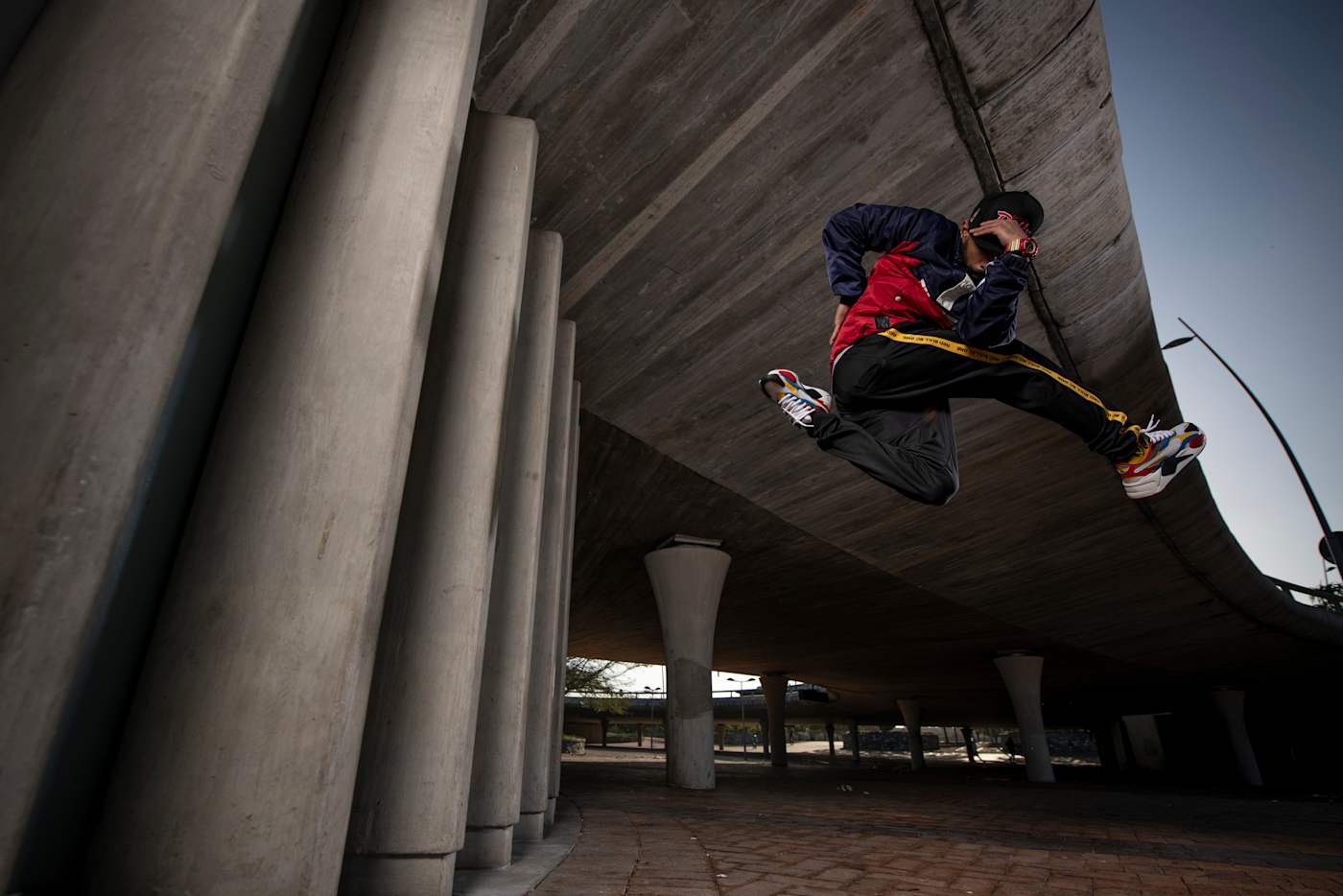
How were you introduced to breaking and how did you get your start?
My first introduction to breaking was back in primary school, around Grade 5, they had a fundraiser at school and there was a circle of kids, I went over to check it out and there was a guy doing flares. I didn’t know what it was, just that it was something I’d like to do. A few years later in high school, I saw kids breaking in the corridor and I realised this is what I was looking for the last few years. I spoke to the guys about how to get into and that’s how I started.
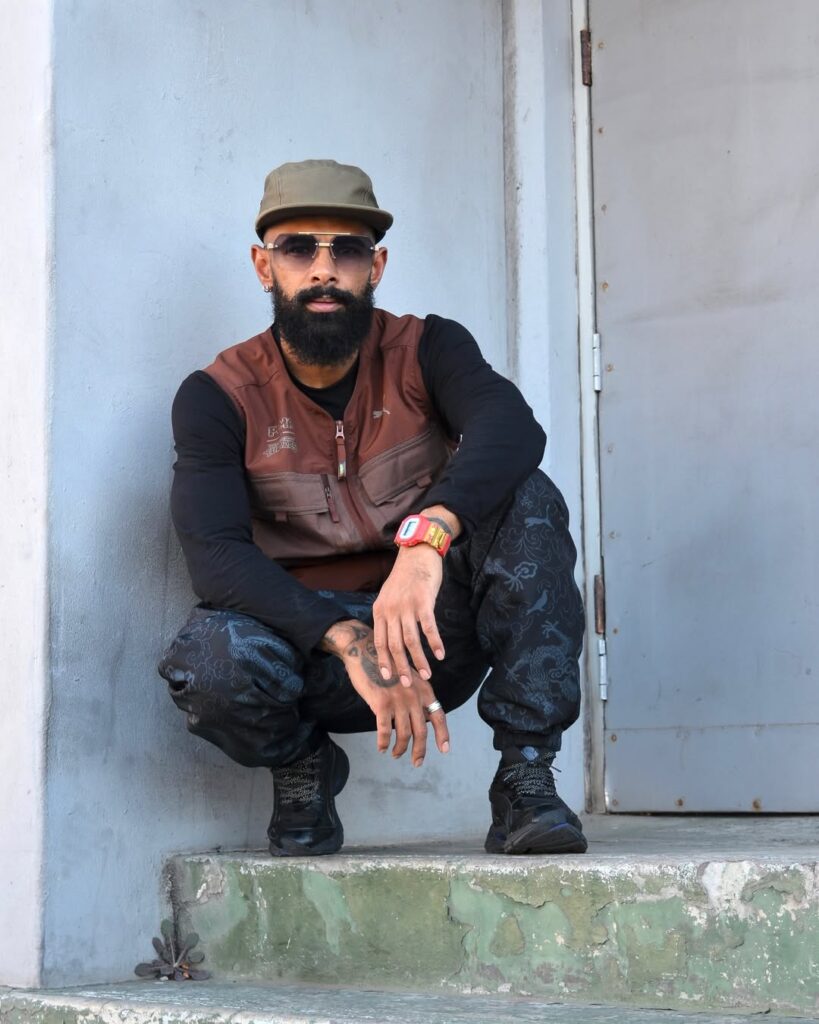
What attracted you to breaking and did you look up to any dancers?
The main thing that kept me going or wanting to do more was when I found out about competitions where you could put your skills to the test. Where you could be classified as the best in your country, city or the world. So I decided to take it seriously and started training. I wanted to be the best. My first competition was Hip Hop Indaba Battle of the Year. I saw over 50 crews and people were breaking all over the place. It was like a b-boy Christmas. From there I was able to connect with local heroes that I looked up to, the people you saw on music videos, like Brasse Vannie Kaap, Prophets of the City, Black Noise, b-boys that were dancing for them or part of the crew, you got see them at the events and moving a bit closer, making conversation and trying to find out more. I found out that there were people in the Brasse Vannie Kaap and POC crew that lived in Eersteriver where I am from and Vouks was one of them. We started connecting and training together. Now we’re really good friends. Meeting these people opened more doors for me. Vouks hosted a competition in Johannesburg called the Solar Pro Battle. I entered in 2009 and made it to the semi-finals, which made me decide I can win it so I trained and won in 2010. That was my first breakthrough in terms of getting a stamp in the breakdance scene.
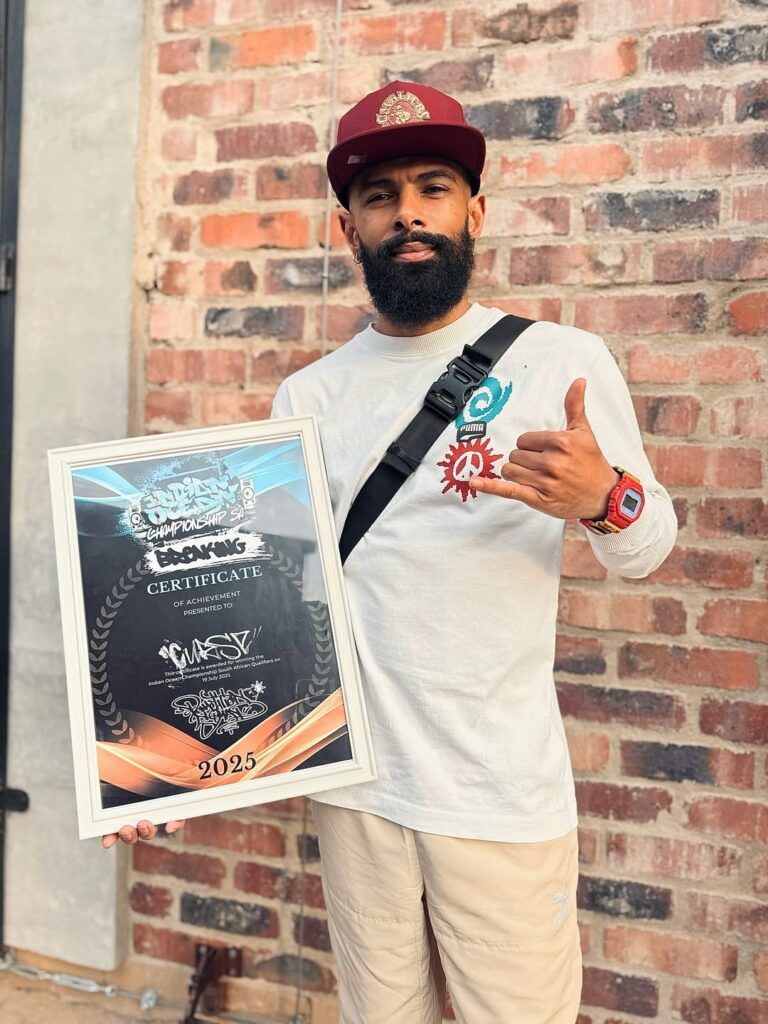
Do you focus on any specific elements of breaking?
I believe all breakers want to be an all-rounder but not all are built physically to pull off everything, but we all try to do the best that we do. For myself, I have a bit of everything, but my main focus is probably execution, flow and being clean. Obviously there has to be some kind of concept or story to your rounds so if you don’t tell a proper story and your execution isn’t clean and you don’t have a dope flow the judges or crowd won’t understand what you’re trying to put out. It’s just a bunch of moves that you’re throwing around with no sense of where it’s going. So that’s been my main focus.
Where do you draw inspiration from for your breaking?
A little bit from everything. My area where I come from. I don’t want to make it sound like a bad place but I come from the ghetto. Life is hard. People are suffering. I put that into my breaking, where I take moves that are difficult and make them look easy when I perform. So I take that, flip it and show that no matter how hard it goes there is some way to flip it to something good. I also look up to a lot of guys, especially younger kids and what they’re doing.

You started dancing as Man Like B recently, when and why did you adopt a new name?
The name The Curse came from when Bboy Benny and I wanted to enter a competition hosted by Vouks around the time when Jay Z’s ‘The Gift and the Curse’ was out and we were going to use that name in the battles. We didn’t use the name and I didn’t know you had to earn a name and didn’t have stage name so I just went with The Curse. It became a brand and grew, but working with some companies it didn’t fit with what they were wanting to put out and I’ve lost a couple of jobs because of the name. I had to think about my career and decided to make a transition, which also a transition from a boy into a man. A lot of people look at you as a kid when you’re a b-boy and a lot aren’t compensated or being respected for what they do because people think it’s just a bunch of kids spinning on their heads. So I thought I’d flip that. But for battles, I’m still B-Boy The Curse because of the reputation that I’ve built up.
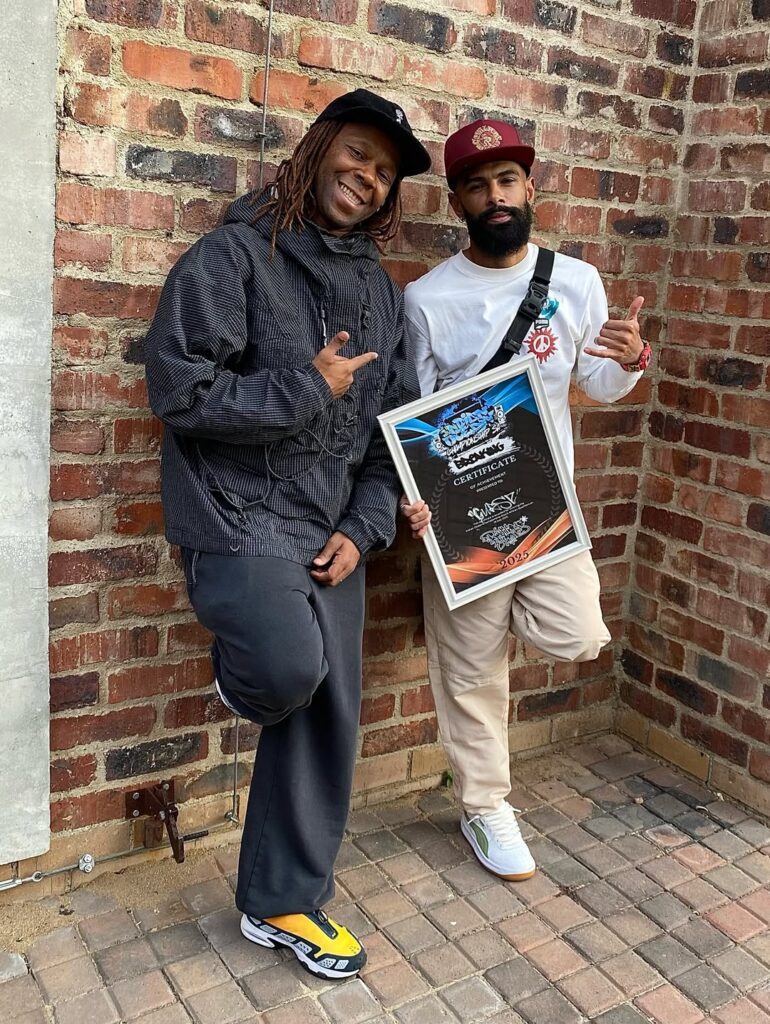
How do you train for competitions like BC One?
You’ve got to stay ready throughout the year cause there’s constantly someone that’s training harder than you. I don’t train for a battle. I like to stay ready for whatever comes up. Obviously your focus and how you put out rounds will change per battle. With BC One I don’t like to overthink it. It’s more of a celebration than a battle. It’s about coming out and showing people what I’m about. I’m gonna celebrate and do me. There are days when you don’t feel like training, that’s when you need to do it because you learn how to perform under pressure. What you have is what you have, don’t force new stuff, you’ll push yourself back. Rather improve what you and make the old shit look new. Try it in different directions, energies, flow, etc.
LOCATION: SOUTH AFRICA
DANCE STYLE: BREAKDANCING
2) Deboh
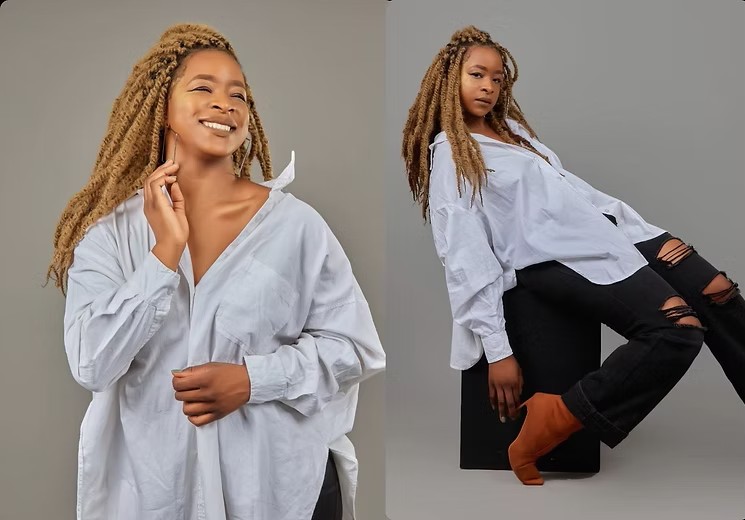
Deborah Nyasha Kabongo, widely known as Deboh, is a celebrated Zimbabwean dancer, Choreographer, and multi-disciplinary artist. A creative and academic, she blends artistry with wellness and community impact. Deboh isn’t just an impecable dancer, a movement director nor just a writer, actress and voice over artist, she also bagged her BSc. Honours in Sport Science and Management. In 2024 Last year, Deboh won the award for the Best dancer at the @namaszim Awards.
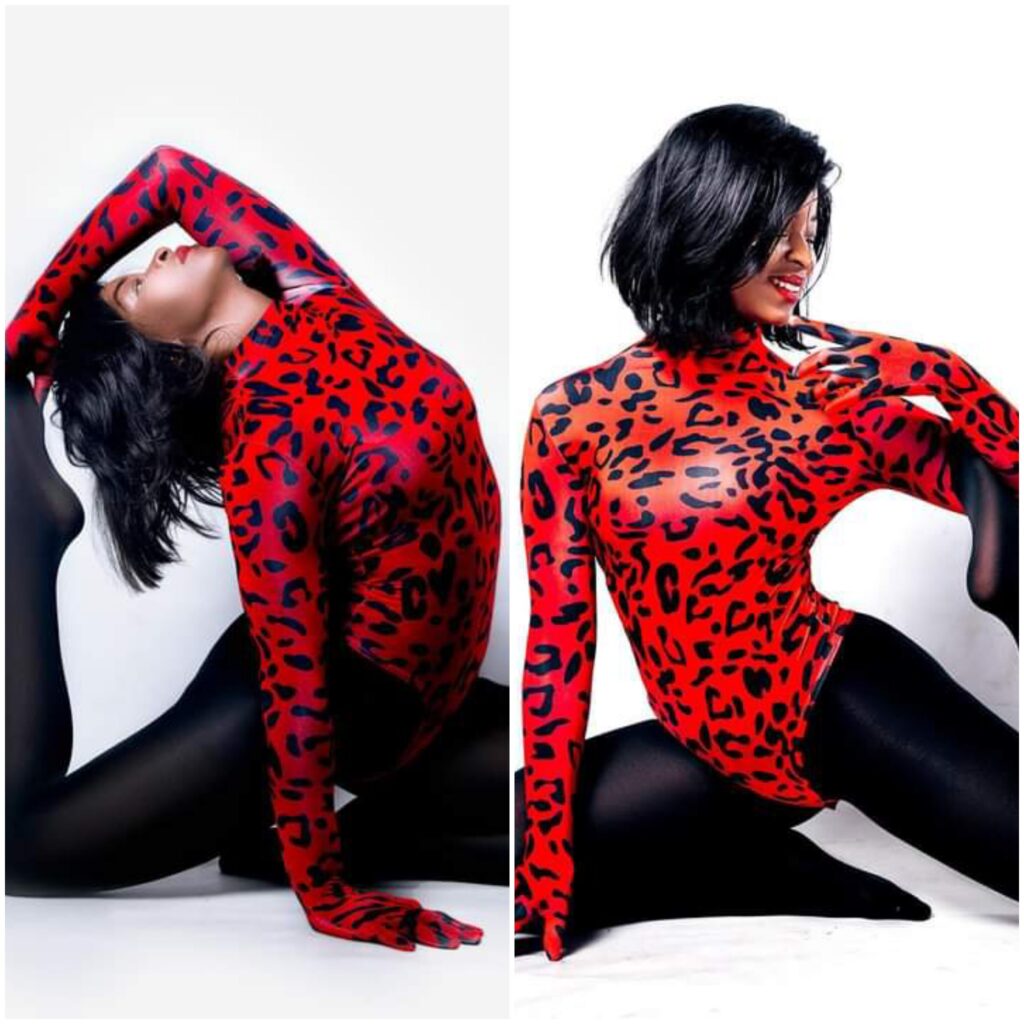
DEBORAH Kabongo, a female dancer and choreographer, says as an African female dancer who is fighting the stigmatisation centered around her profession daily, she strongly relates to Chimamanda Ngozi Adichie’s assertion that “Women should be allowed to have a broad range of what they can be, who they can be and how they can present themselves without losing their femininity”.
Kabongo said one of the key factors that contributed to her success as a female dancer in the industry is the use of the 10,000 hour rule.
The 10,000-hour rule is a concept popularised by Malcolm Gladwell in his book “Outliers”. It suggests that a minimum of 10,000 hours of deliberate practice is necessary to become an expert in any field.
“Putting in the time will yield the results, and I have been dancing most of my life with close to two decades of professional experience. Working hard combined with working smart are the key factors to success. Understanding when and how to put in effort as well as taking time out in order to avoid burnout”.

Kabongo said some of the challenges she has faced as a female dancer are that women have been underrepresented in higher-ranking positions, especially in choreographer and artistic director roles.
“It being a male-dominated industry where male dancers are praised and female dancers are more likely referred to as “loose women” has seen most women shy away from fully exploring the art, leading to the imbalance in those higher roles. The 10,000 hours that l aforementioned has definitely worked as I continue to build my profile and the brand that is me ,” said kabongo.
Kabongo said her sister Miriam Tamiriraishe Kabongo introduced her to dancing and has been a pillar of support throughout her whole journey.
“Dance is a sport and also a form of healing therapy, hence it works both as fitness and free therapy for me”, she said.
LOCATION: ZIMBABWE
DANCE STYLE: CONTEMPORARY
3) Bjmiah

Bjmiah is a celebrated Nigerian dancer and choreographer from Lagos who most fondly is applauded for his innovative fusion of Afro-popping, a style that blends traditional African dance movements, popping, locking, and funk.
Bjmiah, also known as Balogun Jerry, is a Professional dancer and Choreographer from Nigeria, specializing in popping and locking. He is a Red Bull Dance Your Style winner, having won the Nigerian National Final in 2023 and representing Nigeria at the World Finals in Germany. He is also a dance fitness instructor and Content Creator.

A Professional Dance Artist, Balogun Jerry is recognized also as a professional choreographer who is known for his specialty in Popping and Locking. Aside winning the 2023 Red Bull Dance Your Style Dancer the Nigerian National final then before gong on to compete in the World Finals. He creates dance-related platforms like Instagram and also works as a dance fitness instructor creating dance-related content for platforms like Instagram.
He has also won other dance competitions like ”Spread The Funk” and ”Monster Battle Of The Moves”. He is scheduled to share his knowledge and inspire dancers at the Beyond Words Dance Camp Festival in Lagos, organized by Delights Academy in 2025.
Jerry Balogun, aka BJMIAH, was born in Lagos and started dancing at the age of four. He began dancing professionally when he turned 20, without knowing if he was popping, locking or learning Afro Dance. Instead, he just moved his body and felt the rhythm. Performing in as many places as possible, he soon came to the attention of those in the afrobeats scene.
I want to explore, build studios and help people across the globe learn to dance
BJMIAH
BJMIAH has a long list of battle wins across Nigeria in various competitions, from popping and locking to freestyle. But he credits his greatest accomplishment as showcasing his skills at Red Bull Dance Your Style as it pushed him to higher levels and connected him with other talented dancers in the industry.
Throughout his career, BJMIAH has trained in many traditional African dances, which he fuses with funk to form his own unique style that he calls afro-popping.
“In the future, I hope dance takes me everywhere,” says BJMIAH. “I want to explore, build studios and help people across the globe learn to dance. I teach a lot now. I have an open class every Wednesday that I started because I know how much potential we have here in Nigeria. We don’t always realise how talented we are and how big we can make styles like funk in this country and beyond.
“I started my free class so everyone could be there and I’m doing my bit to grow the scene. I’m glad that so many people are still showing up and want to learn from me because I’m also constantly learning myself. I’m so passionate about passing on this knowledge from other pioneers.”
LOCATION: NIGERIA
DANCE STYLE: POPPIN’ and LOCKIN’
4) Seyi Oluloye

Seyi Oluloye is a Nigerian choreographer, filmmaker, and social entrepreneur whose work has transformed the lives of street children through the powers of dance. In 2014, she founded Dream Catchers Academy, providing free dance, drama, and music education to underprivileged girls in Lagos.
The vision behind the Dream Catchers Academy, a project of Dream Nurture Initiative set up by Seyi Oluyole is to ensure that children have access to quality education through formal education, sustainable education, leadership skills and arts education.
Her Dream Catchers Academy project has gotten international attention from celebrities like Beyonce, Naomi Campbell, Rihanna, Diddy, Cardi B, John Boyega; to mention a few.

In 2018, She was selected as one of the 20 Outlook Inspirations for the year. Herself alongside her students, received a recognition plaque from the then Lagos state Governor, Akinwunmi Ambode after performing for him and other dignitaries at a Government function. In line with her belief that every child deserves an opportunity to succeed irrespective of their background; Ms. Oluyole is a recipient of awards from the Nigerian Child Initiative (2018).
Using dance to get Nigeria’s street kids back in school
How Seyi Oluyole’s Dream Catchers captured the attention of celebrities and made their way back to the classroom.
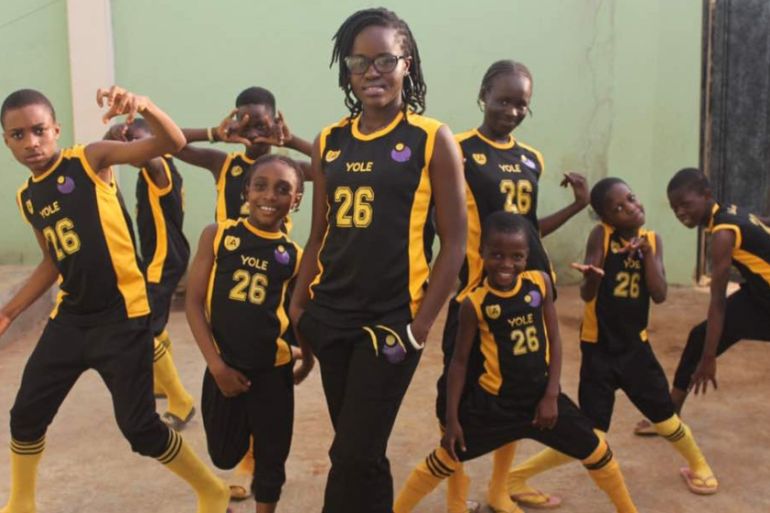
Lagos, Nigeria – Blessing was nine years old when she stopped going to school nearly eight years ago. Her family simply couldn’t afford it.
“I was just at home doing nothing ” Blessing, now 16 years old, recalls.
It wasn’t until she met Seyi Oluyole three years later that finishing school in Nigeria seemed possible.
“Aunty Seyi helped me to return to school,” she says smiling.
Oluyole, a choreographer and scriptwriter in Nigeria’s commercial city of Lagos, started the Dream Catchers dance group in late 2014 to help street kids and those from low-income families get an education.
The idea was dreamed up 10 years earlier when Oluyole’s family moved to a slum in the Ebute-Metta neighbourhood of Lagos after her father lost his job as a banker.
When planning a worship night at her church, the now-27-year-old realised how much the kids loved to dance. But many of those wishing to be part of the dance group weren’t in school, and Oluyole knew she needed to help.
10.5 million not in school
About 10.5 million children, aged five to 14 years old, are not in school in Nigeria, according to the UN children agency, UNICEF. Only 61 percent of children aged six to 11 “regularly attend” primary school, the agency said.
Although basic education (primary and junior secondary) is free and compulsory, lack of adequate funding from the government has made public schools unattractive to many parents.
Many children whose families cannot afford private schools stay at home or find ways to make money on the streets.
Recognising the need, Oluyole says she started requiring that children attend school in order to be in the church’s dance performance.
The dance group continued in an informal capacity for eight years before Oluyole left for university, but she would continue practising with the children during her holidays. In 2012, she left for the United States in hopes of pursuing her master’s degree.
Two years later, she returned to Nigeria and eventually started the dance classes again, this time in a more formal way.
“It wasn’t really an easy choice and I had people who didn’t think it was a great idea,” she says.
‘Catching the dream’
Twenty kids came to the first class, and that’s when the Dream Catchers group officially began.
“We are not chasing any dream, it is possible to chase a dream and not catch it. What I see is that there is a dream we have and the goal is to actually catch it and make so many things come true,” Oluyole says.
![Seyi and the kid want to make the most of dancing [Courtesy: Dream Catchers]](https://www.aljazeera.com/wp-content/uploads/2018/12/c06f70e923e04661b15b7fefc5b8830b_7.jpeg?quality=80)
In February 2015, she got a script-writing job on the Nigerian soap opera Tinsel. When she received her first paycheque a month later, she immediately went to a private school and enrolled one of the Dream Catchers 10-year-old dancers, but she doing so for other dancers proved to be hard without the needed monetary support.
That’s when she turned to recording the dancers, which totalled about 11 at the time, performing dances to hit songs in hopes of getting a well-known artist to share their work or invite them to perform.
But after several videos went unnoticed, Oluyole doubted that she would financially be able to keep the group going.
“I just told myself I was going to give this whole thing one more year and if nothing works out I was going to drop it and move,” she recalls.
The big break
That year had almost come to an end when popular Nigerian disc jockey and singer DJ Spinall teamed up with one of Nigeria’s biggest Afrobeats megastar Wizkid to produced his new song “Nowo”. The song was a hit, played in bars, barbershops and in the streets all over Nigeria.
The Dream Catchers rehearsed a dance to the song over and over again.
One sun-baked Sunday afternoon in early March 2018, just after the students came back from Sunday service, some of the kids were hungry and there was barely enough food to go around. But Oluyole had often used dance as a distraction.
“Let’s go and do a video,” she recalls saying to the four young girls, including Blessing, present. Wearing berets and their yellow, striped knee-high socks, they performed their dance to Nowo at a nearby junkyard.
We are not chasing any dream, it is possible to chase a dream and not catch it. What I see is that there is a dream we have and the goal is to actually catch it and make so many things come true.
by Seyi Oluyole
The next day, Oluyole posted the video on Instagram. Gradually, the video began to go viral. Popular blogs, influencers, and other dance channels on social media raved about the performance.
By March 10, supermodel Naomi Campbell posted the video on her Instagram page, attracting close to one million likes. And singer Rihanna also shared the video to celebrate her success of crossing two billion worldwide streams on Apple Music. Her post got nearly three million likes and more than 50,000 comments. It was also shared by star P Diddy.
“It was when Rihanna posted that the video caught fire,” Oluyole says.
In the months after the viral video, the Dream Catchers troupe, also known as the Ikorodu Talented Kids, performed in a local TEDx conference and at an event to celebrate Children’s Day organised by the Lagos state government.
Challenges remain
Despite the success, the troupe still struggles to obtain the financial support needed to keep the children in school, housed and fed.
“I would say we were not where we used to be,” Oluyole says. The popularity “didn’t bring about the change I had in mind, we got plenty promises but no serious action. But getting donations isn’t as hard as it used to be before; we have more followers now who are interested in the kids.”
Still, the local community recognises the good Oluyole and her troupe are doing.
Modupe Rahmon, a teacher in a public primary school in Lagos, has been following Oluyole’s work for years.
“I was amazed when I learned of Seyi [Oluyole] and how she is using dance to encourage them to go to school, and not just that, but to stay in school and become better people for themselves, their families and the society at large,”
“Getting kids back to school is compulsory for their growth and for the overall development of the nation,” she says.
![The children are required to go to school to participate in the dance classes [Linus Unah/Al Jazeera]](https://www.aljazeera.com/wp-content/uploads/2018/12/2e09c47eb6194ff9bfc3ec05d687020c_18.jpeg?quality=80)
Today, 10 children, including Blessing, live with Oluyole in a three-bedroom apartment in a gated estate. Their school fees in private primary and secondary schools range from $215 to $315 for each child every school term, which usually runs for about three months.
“I feel happy and comfortable that I am going to school,” Blessing says. “I want to study hard so I can become a very big person in life and so that I can help other kids from poor homes.”
Oluyole admits that while she is helping these kids return to school, much more work needs to be done to reach millions of children who are not receiving an education.
Oluyole has set her sights on starting an arts academy that could house at least 50 children and open its doors for classes to many others.
“Millions of children are out of school, poverty levels are high, and thousands loiter in the streets,” she says. “Addressing these challenges take really a lot of time – with our work we’re doing our own bit, and hopefully with more funding and support we can scale it to reach much more children even though that doesn’t necessarily reach everybody.
Ms. Oluyole is also a writer, filmmaker and dance choreographer.
She was also featured on the August edition of InStyle Magazine ‘BadAss women’ As top 50 BadAss women to look out for in 2020. She was born and bred in Lagos.
Ms. Oluyole is a creative who is experienced in public speaking, communication and social media management and she has used this skill in championing issues of social change. She has used these skills to build a followership of over 200,000 on Instagram and over 4,000 likes on Facebook.
In May 2022, Ms. Oluyole along with her organization – Dream Catchers Academy partnered with Global Citizens #WECANPERIOD PROJECT ON PERIOD POVERTY strengthening of menstrual and sexual health orientation and education in secondary schools in Nigeria, scaling up of interventions to dismantle negative social stigma around menstruation, providing sanitary materials to enable girls bleed safer and promoting male allyship.
In March 2022, Ms. Oluyole was a speaker on ‘Empowerment of Adolescent Girls’.
LOCATION: NIGERIA
DANCE STYLE: AFROBEATS
5) GGB Dance Crew

GGB dance crew is a trailblazing Nigerian group making bold moves in the Afro-pop performance scene. Since 2014, they have built a vibrant legacy through music video choreography, brand collaborations, viral social content, award-winning recognition – all achieved while staying true to their Lagos roots. They specialize in energetic choreography that blends magnificent street moves with bold stage presence.

GGB Dance Crew is a Notable Known Nigerian Dance Pop Feamle Groupjj known for their energetic and creative choreography, particularly in Afrobeats and other popular Nigerian music genres. The group consists of three members: Odiley Emmanuella, Afije Rose Omokhoa, and Ifeoma Efiokwu. They gained popularity for their unique style and have become one of the most recognized female dance crews in Nigeria.

The group was formed in February 2014 after the members, who were previously independent video vixens, met at a music video shoot. GGB is known for their bold and dynamic style, incorporating various dance moves and genres, including Afrobeats, street dance, and more. They have achieved significant recognition in the Nigerian entertainment industry and beyond, with a strong online presence and numerous performances. GGB is active on various social media platforms, including Instagram, TikTok, YouTube, and Facebook, sharing their dance videos, behind-the-scenes content, and engaging with fans. The group has collaborated with various artists and brands, and they have been featured in music videos and live performances. They also participate in dance challenges and competitions. GGB also has a dance studio and offers Afrobeat dance classes.
The age of millennials in Nigeria birthed a dance force to be reckoned with; one whose name cannot be omitted, forgotten or struck out when entertainment is mentioned.
A three-man posse, the GGB dance crew officially breathed its first on the 14th of February 2014 with its debut performance with Dr SID.
The group consists of three powerful Nigerian women– Afije Roseline Omokhoa, Odiley Emmanuella, and Efiokwu Ifeoma.
The trio crossed paths at a Clarence Peters video shoot where they fell in love with each other’s talents and made a pact that brought the GGB dance crew to life.
Exceptionally talented in the art of dancing, the three ladies were born and bred in Nigeria’s most populated city – Lagos.
From the suburbs of Edo State, Roseline Omokhoa was born on the 31st of March 1995 to the family of Mr and Mrs Omokhoa in Surulere, Lagos State. She attained her primary and secondary education in Itire Nursery and primary school and Del International College, Ijeshatedo, Surulere respectively.
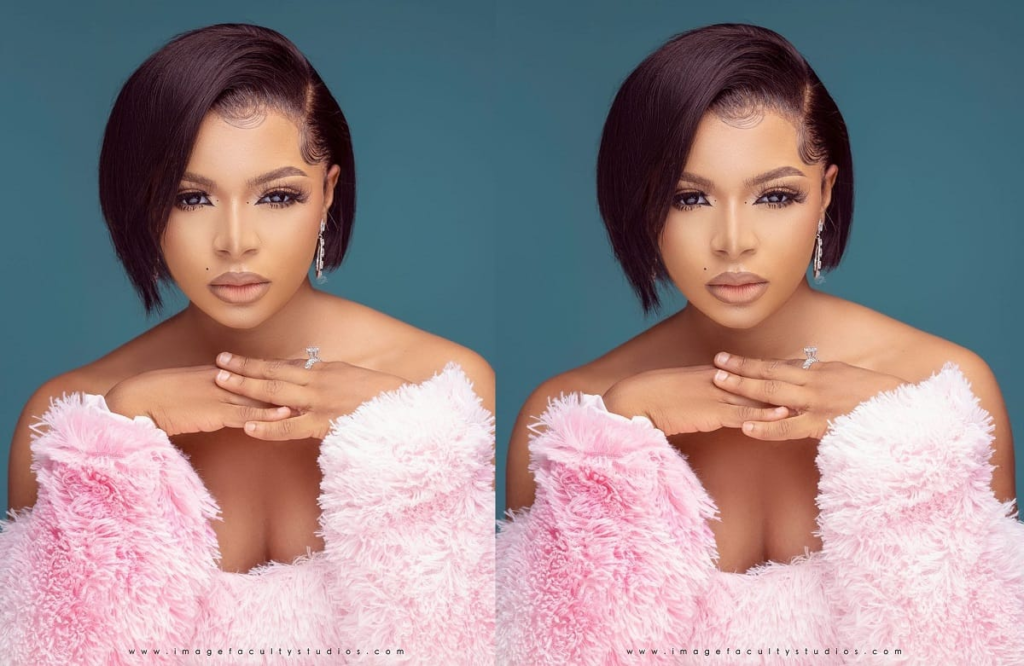
In the springtime of her life, Rose unearthed her unique talent of being able to entertain and sway a crowd through reenacting life situations. By the year 2012, her abilities came to public glare in the light of the award-winning TV series – The Johnsons.

By the time she stumbled upon her soul sisters, Ifeoma and Ella, she was already a big name in the Nigerian entertainment hub.
A native of Nigeria’s ‘finger of God’ (Delta State), Efiokwu Ifeoma was born on the 4th of October 1993 in Ketu, Lagos. She attended the Abbey Junior Mixed and Infants School, Ketu, Our Lady of Apostles Secondary school, Yaba and subsequently, University of Benin Edo State.

Ifeoma’s ascension to success kick started in 2012 when she emerged 1st runner up in the Maltina dance all competitions. By 2014, she had begun mastering the game and charged out, a proud winner of the Dance Marathon’s Dance on the Move competition in 2014.
Birthed in Surulere, Lagos to Mr. and Mrs. Odiley, Emmanuella Odiley is the last piece to the puzzle of the GGB dance crew. Ella discovered her passion her dance in the teenage years of her life and quickly began to develop them into a skill. She attained her primary education at Command children’s school, Yaba. After her secondary education in Ogunlade College, Surulere, she attended the University of Lagos for her tertiary education.
As a team, the crew has worked with an array of notable Nigerian celebrities such as 2face, Psquare, Donjazzy, Wizkid, Iyanya, Banky W, Sean Tizzle, Skiibii, CDQ, Patoranking, Wande Coal, Teni, Runtown, Cynthia Morgan, Seyi Shay, Dbanj, Falz, Kizz Daniel, Yung6ix, Skales, Orezi and a host of others.
The three-woman crew was announced the winner of the category on Friday, July 1, 2022, ahead of other nominees, Poco Lee, Kaffy, Pinki Debbie, Tosin Pedro, and Stephen Papi. Congratulatory messages poured in from fans when Afige ‘Liquorose’ Omokhoa, BBNiaja season six runner-up and one of the GGB dancing crew shared the news on her Twitter account.
These three women after the salad days of their careers have woven an unseverable bond and have changed the narrative of dance in Nigeria. For a long time to come, we will always look back to the strength and enigma of the GGB crew, their fierce determination and their impact on dance as we know it today.
6) Tebza
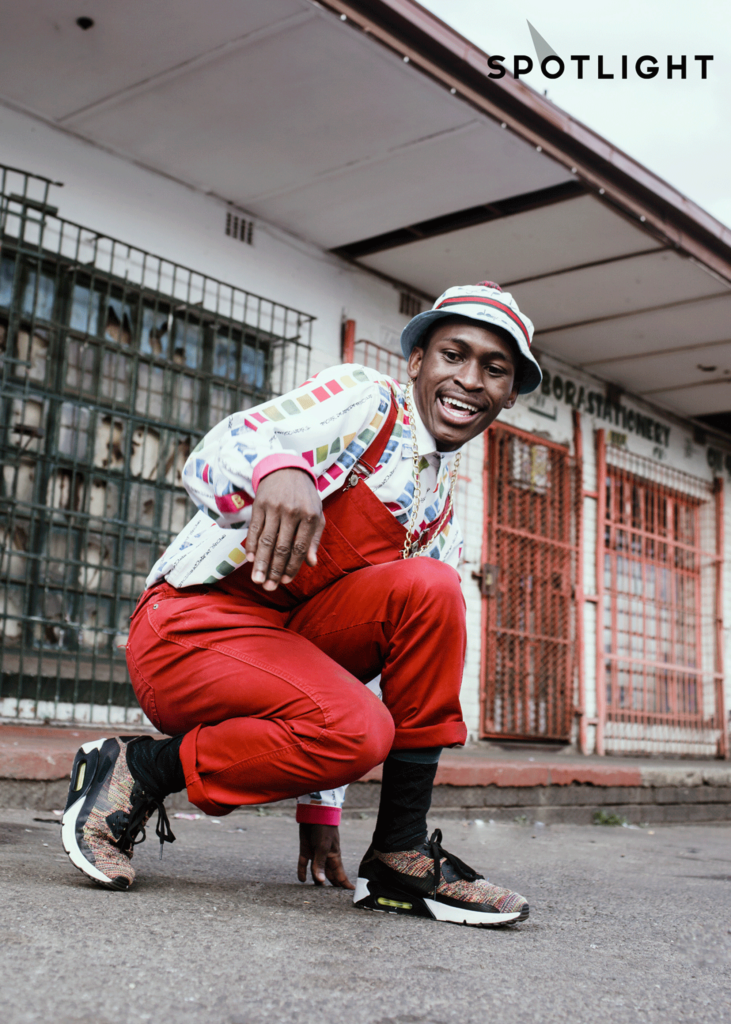
Teboho Diphehlo is a powerhouse in South Africa‘s street dance scene. He is an ambassador of Jiving Pantsula, skillfully fused with the b-boy flair. Born and raised in Soweto, he began his journey dancing in community gatherings and school battles, later joining the legendary Shakers and Movers Crew in high school. Beyond performance, Tebza is committed to community upliftment. He founded Intellectual Pantsula in 2012 and host frees workshops in Soweto that helps instill confidence.

TEBZA DIPHEHLO

Getting to know about the SA champion of the most biggest international dance festival – Red Bull Dance Your Style.
BACKGROUND
Tebza Diphehlo is a dancer, teacher and choreographer from South Africa in Soweto. He was born in 1993 in Johannesburg and began his dance journey in 2000. Ever since then Tebza worked tiredlessly to perfect his dancing and that led to him looking beyond just dancing but teaching, choreographing and researching about Spantsula and other South African urban dance styles. Today Tebza is considered as a pioneer of Pantsula and Amapiano dance styles due to the experience and the knowledge he has acquired over the years of his dancing and researching.
MY DOCUMENTARY ON CNN (African Voices) – My part (Time stamp) 11:32.
MY BIGGEST TITLE – In 2018 Tebza made a history by winning the first Red Bull Dance Your Style South Africa
I AM ON THE RED BULL CAN – Another win for Tebza was when he became the first dancer in Africa to be featured on a limited edition of Red Bull energy drink.
TOP 5 SA BEST DANCERS – According to FunTimes Magazine Tebza is ranked one of the top SA best dancers alongside Gregory Maqoma and others.

Moments Collection.

Born and bred in Soweto, Tebza is at the forefront of the Pantsula dance movement and has pioneered the dance style on global stages for the world to witness. He works as a dancer, teacher, and choreographer at his own dance school in Soweto. His achievements include winning the inaugural South African leg of Red Bull Dance Your Style in 2018, which earned him a place at the World Final in 2019 in Paris. Tebza was also in the top 25 of the nationwide television dance competition So You Think You Can Dance, and worked as an assistant choreographer on the show.

As someone who is putting Pantsula dance and Soweto on the global map, Tebza hosts online classes, teaching dance students in Sweden and the rest of the world. The live global Pantsula workshop on the Red Bull Dance Instagram channel will reach an even wider audience and spread the art and skill of complex footwork, and dance moves that are unique to South African dance.

“People should expect to sweat a lot (haha). Jokes! I will be sharing an important knowledge regarding Pantsula dance during the workshop and am excited to have dancers and enthusiasts around the world join in.” says Tebza.

Tebza started dancing when he was in my primary school but made it a profession in 2005. I got a formal Pantsula training in a Pantsula company called Shakers & Movers. He’s been a stalwart of the industry for over 15 years and has a variety of accolades to his name, including winning Red Bull Dance your Style in SA in 2018.

Pulsing with rhythmic energy, the seven dancers and single musician of Via Katlehong Dance have teamed up with contemporary choreographer Gregory Maqoma for Via Kanana, examining corruption in South Africa and asking wider questions about those in power and the unfulfilled promises made in the transition to democracy. Careening from the mundane to the metaphorical, this production takes its inspiration from South Africa itself, evoking a new promised land that never arrives (Kanana in the Sotho language) which people must rise up and seek for themselves.
Freedom the Musical, a ground breaking musical by the State Theatre’s Artistic director and multi-award winning playwright and Director Aubrey Sekhabi. A strong cast of 47 members and a thirteen piece band tell the story of Phindile (Simphiwe Ndlovu), a Tshwane University of Technology student and leader of #Fees Must Fall movement. Phindile’s life takes a sharp turn after the student protest at the Union Buildings in Preto

Photo by Olga Segura Fotografia
LOCATION: SOUTH AFRICA
DANCE STYLE: AMANPIANO PANTSULA
7) Innos’ B

Innoss’ B is a Congolese musician, dancer, songwriter, and cultural ambassador widely hailed as the pioneer of Afro Congo, a vibrant dance style that fuses Congolese rumba, Ndombolo, Afrobeats, and hip-hop. Whether through his genre–defining beats, his captivating dance moves, or his impactful humanitarian work, he’s a true leader making waves on and off the stage.
Introduction to Innoss’B: The Jeune Leader
Innocent Didace Balume, better known as Innoss’B, is a dynamic Congolese artist whose multifaceted career has reshaped the landscape of African Music. Born on May 5, 1997, in Goma, North Kivu Province, Innoss’B’s contributions as a singer, songwriter, rapper, dancer, and philanthropist have earned him accolades on the global stage. Known for pioneering AfroCongo, a genre blending Congolese Rumba, Ndombolo, Afrobeats, and hip-hop, he continues to captivate audiences worldwide.
The Musical Roots: Growing Up in Goma
Innoss’B’s early life was heavily influenced by his family’s musical background. His father was a dancer, and his mother a church cantor. Raised in Goma, a region marred by conflict, music became an avenue of expression for the young Innocent. By the age of six, he had joined his brothers in forming Maisha Soul, a family band. Their big break came when they won the 2007 Revelation Award at the Goma Tourism Fair, marking the start of Innoss’B’s journey in the music industry.
A Star is Born: The Vodacom Superstar Contest
At just 13 years old, Innoss’B took a monumental step forward by winning the Vodacom Superstar contest in 2010, sponsored by Akon. His remarkable performance of Michael Jackson’s “The Way You Make Me Feel” earned him $25,000 and widespread recognition. The victory set the stage for his collaboration with Akon on the hit song “Up and Away,” launching his solo career.
Innocent Vol.1 and the Move to Kinshasa
In 2013, Innoss’B released his debut album, Innocent Vol.1, which showcased his versatility and ability to blend various genres. The album’s success in Kinshasa established his presence in the Congolese capital, helping him reach a wider audience. His collaborations with music legends such as Werrason and Koffi Olomidé further solidified his status as a rising star.
The Breakout Moment: “Yo Pe” and Global Recognition
Innoss’B’s 2019 hit “Yo Pe” was a defining moment in his career. The AfroCongo track, filled with energetic beats and sharp lyricism, went viral across Africa, garnering millions of views on YouTube. The remix featuring Tanzanian superstar Diamond Platnumz catapulted the song to international fame, accumulating over 150 million views. “Yo Pe” also sparked the viral “Yope Dance Challenge,” making Innoss’B a household name beyond the borders of the Democratic Republic of the Congo.
Mortal 06: A Fusion of Genres and Global Appeal
In December 2021, Innoss’B released his second studio album, Mortal 06. This album further demonstrated his ability to fuse Congolese rumba with hip-hop and Afro-trap. Tracks like “Sukali” became instant hits, earning Innoss’B top positions on music charts across Africa. His American and European tours following the album’s release helped him solidify his reputation as one of Africa’s most promising music stars.
The Evolution of AfroCongo: A Unique Musical Style
AfroCongo, a genre pioneered by Innoss’B, is a fusion of traditional Congolese sounds like Rumba and Ndombolo with contemporary Afrobeat and hip-hop. This hybrid genre reflects his upbringing in Goma, as well as his desire to introduce Congolese music to a global audience. Tracks like “Ozo Beta Mabe” and “Olandi” exemplify the infectious rhythms and lyrical depth that characterize AfroCongo, making it accessible to listeners across different cultural backgrounds.
Philanthropy and Social Impact
Aside from his musical career, Innoss’B is known for his philanthropic efforts. He has used his platform to speak out on social issues, including the ongoing conflict in the eastern regions of the DRC. Part of his Vodacom Superstar contest winnings was dedicated to improving his former school in Goma, showing his commitment to giving back to his community. Innoss’B’s philanthropic work continues to inspire young people in the DRC and beyond.
Looking Ahead: The Future of Congolese Music
With multiple hit singles, international tours, and collaborations with major African artists, Innoss’B is poised to lead the next generation of Congolese Musicians onto the global stage. His unique AfroCongo style, youthful energy, and innovative approach to music ensure that he will continue to push the boundaries of African Music.
Conclusion: Innoss’B’s Legacy in the Making
In less than two decades, Innoss’B has risen from Goma’s war-torn streets to become one of the most influential musicians in African. By pioneering AfroCongo and staying true to his roots, he is reshaping how Congolese music is perceived both at home and abroad. As he continues to innovate and inspire, Innoss’B’s legacy is just beginning to take shape.
LOCATION: DEMOCRATIC REPUBLIC OF CONGO
DANCE STYLE: AFRO CONGO (a mix of Ndombolo rumba, Hip-hop, and Afrobeats)
8) Dancegod Lloyd

Laud Anoo Konadu (born 25 May 1992), known professionally as Dancegod Lloyd, is a Ghanaian dancer, dance coach, and choreographer. He is a co-founder of the dance school, DWP academy, and founder of Dance Grow Live Academy (DGL Academy). In 2020, he performed in Beyonce’s “Already” music video, which featured Shatta Wale. In 2023, he featured in a major commercial by Fly With Dubai in the United Arab Emirates.
He has performed in several music videos, including “Already” by Beyonce, “See Brother” by Patoranking, and “Shoo” by Kwamz and Flava.
In 2017, Dancegod and his former manager, Quables, and former dance partner, Afro Beast, initiated a charitable group called “Dance With Purpose Academy,” which was aimed at helping young, talented dancers on the street.
Original dances
Shoo — is a song by Kwamz and Flava but Dancegod Lloyd is credited to have created the dance steps.
Discography
Singles
- “Sika” featuring Medikal
- “Corner Der” X DWP Academy, Afrobeast
- “Eheati” X DWP Academy, Afrobeast
Music video appearances
- “Already” by Beyonce, Shatta Wale, Major Lazor (2019)
Dancegod Lloyd is a co-founder of the Dance with Purpose academy, a dance school aimed at nurturing young talent and providing opportunities for aspiring dancers. This initiative also has a charitable aspect, assisting disadvantaged young dancers on the street. He gained significant international attention for his performance in Beyonce’s “Already” music video, which also featured Shatta Wale, in 2020. He has also appeared in other music videos, including “See Brother” by Patoranking and “Shoo” by Kwamz and Flava.
The 2nd edition of the Ghana Dance Industry (GHADI) Awards, was held at the National Theatre on Saturday, 8th February, 2025 with several dancers picking up various awards.
Dancegod Lloyd clinched the ultimate spot, Dancer of the Year, while DWP Academy won the Street Dance Group of the Year. Afronitaaa and Abigail both picked Dance Merit Awards, for their role as Street Dance Culture Ambassadors.
The Dancer of the Year category which sparked online controversy ahead of the event date, saw a stiff competition between Dancegod Lloyd and Incredible Zigi, AfroNitaaa, Endurance Grand, Ezuntey Flex, and Bboy Lyricx. Despite the stiff competitive lineup, Dancegod’s works within the dance space earned him the ultimate dance title – Dancer of the Year.
DWP Academy took home the coveted Street Dance Group of the Year beating Millitantz Dance Family, 4Bent Dance Crew, Arenees Dance Crew, Team Hubes Dance Crew, DGL Dance Crew, Flawless Dance Studio, and I AM AZONTO Dance Crew.
Team Hubes was awarded Dance Athletes of the Year (Group), while Afrikiko Leisure Centre was named AfroLatin Dance Club of the Year. Additionally, Agoo Cultural Group won the Traditional Dance Group of the Year, and Let’s Dance Africa was recognized as the Praise Dance Group of the Year.
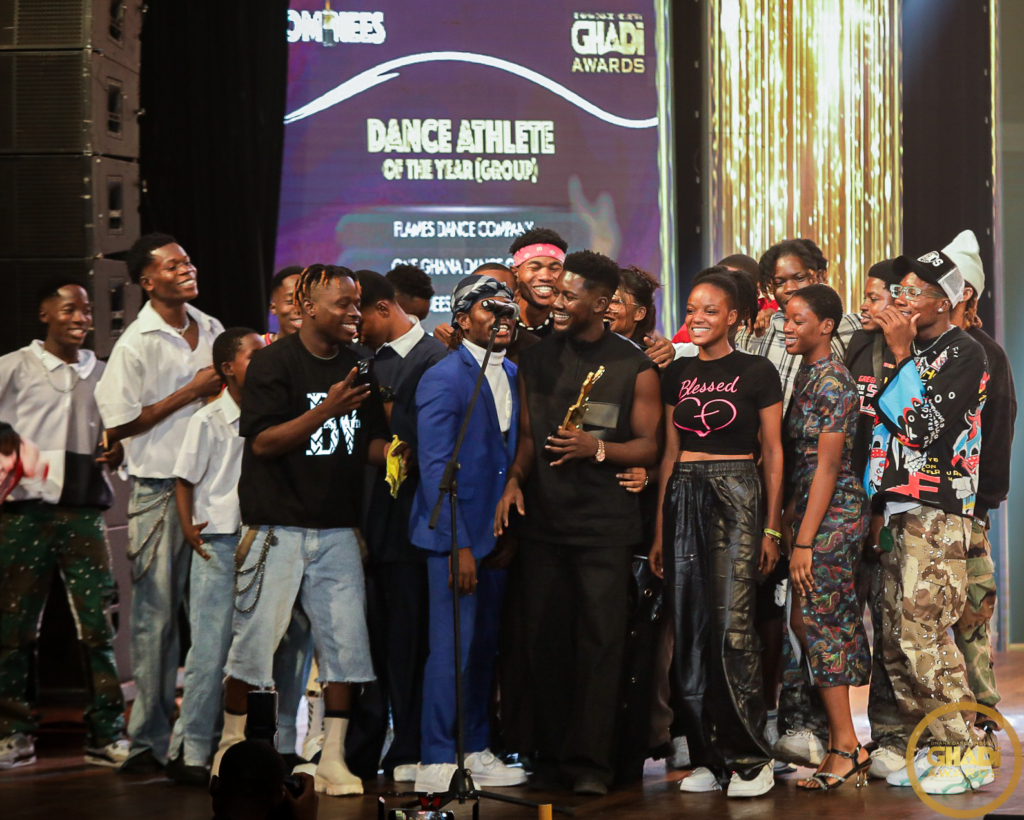
The event, which was a hybrid of competitive and honourary awards, had 22 dance icons honoured for their remarkable contributions to the dance space including AfroNitaaa, Mr Drew, Laladzy, Abigail and Allo Maadjoa. Other international dance icons recognized are Buddy Doubara Agedah (organizer of the Nigerian Afrolatin Dance Festival hosted in Abuja and Lagos), and Prince “MIK” Ofori (organizer of the CDC festival in Germany).
In a statement by the CEO of Dancetera, also founder of the Ghana Dance Industry Awards, Roberk Klah, he emphasized the importance of celebrating dancers.
“After the 1st edition in 2021 we took a long break. But I can now say, that the Ghana Dance Industry Awards has finally arrived. It’s been a long time coming. This moment, is a moment of triumph for dancers and choreographers nationwide.
What most people don’t realize is that our dancers are not just best in Ghana or Africa, they are amongst best in the world. And they need to be celebrated at home for their local and global strides. We therefore urge all dancers to embrace the GHADI Awards, and help it serve its purpose for the common good of the ecosystem. The Ghana Dance Industry Awards is designed by us, for us, and we must ensure it is credible and relevant, year on year,” he said.
LOCATION: GHANA
DANCE STYLE: AFROBEATS, HIP-HOP
9) Ajib Gathoni

Ajib Gathoni is a Kenyan dancer, Tik Tok sensation, and entrepreneur known for her captivating Afrobeats choreography and vibrant online presence. Rising to fame during the COVID-19 pandemic, she quickly amassed millions of followers and earned accolades like the Pulse influencer Award for Best Dancer. Beyond dance, Gathoni is a vocal health advocate and co-founded the Youth Fashion Brand Random Wear.
Early Life And Education
Ajib Gathoni was born on June 1, 1999, in Kenya to parents whose names are not publicly known, Mr. and Mrs. Gathoni. She has several siblings, including a sister named Iman.
Gathoni completed her secondary education at Chania Girls High School in 2017 before furthering her studies with a networking course at Jomo Kenyatta University of Agriculture and Technology (JKUAT).
She is of Kikuyu ethnicity. Although born into a Muslim family, Gathoni’s life took a significant turn after her parents’ separation. Her mother converted to Christianity, and Gathoni followed the Christian faith.
Career
Ajib Gathoni’s journey into social media began in December 2017 when she joined Instagram, initially showcasing her modelling and dance talents. Over time, she transitioned to TikTok, where her captivating dance videos quickly gained traction, propelling her to significant fame.
Her ability to engage with audiences through trending dance challenges and her infectious personality allowed her to build a loyal following. Today, Gathoni has amassed over 1.4 million followers and 48.3 million likes on TikTok, making her one of Kenya’s top influencers.
Her content, which frequently features fashion transitions and viral dance challenges, resonates deeply with her audience. One of her videos garnered over 3.8 million views, solidifying her as a household name, especially among Kenyan youth.
Her influence has earned her accolades, including the Pulse Award for Dance & TikTok Influencer of the Year, further cementing her status in the digital space. In addition to her successful social media career, Gathoni is the CEO of Random Wear, a clothing brand she co-founded with her boyfriend, Josh Wonder.
The brand focuses on delivering trendy outfits across Kenya, reflecting Gathoni’s passion for fashion and entrepreneurship. Beyond her work in fashion, she has collaborated with well-known brands like Coca-Cola and Safaricom PLC, utilizing her substantial social media reach to promote products effectively.
Despite her success, Gathoni remains focused on her education while continuing to engage with her followers and manage her growing entrepreneurial ventures. Her relationship with Josh Wonder, marked by personal and professional collaborations, further enhances her relatable and authentic public persona.
Social Media
- Instagram handle: @ajib_gathoni
- Facebook handle: Ajib Gathoni
- TikTok: Ajib Gathoni
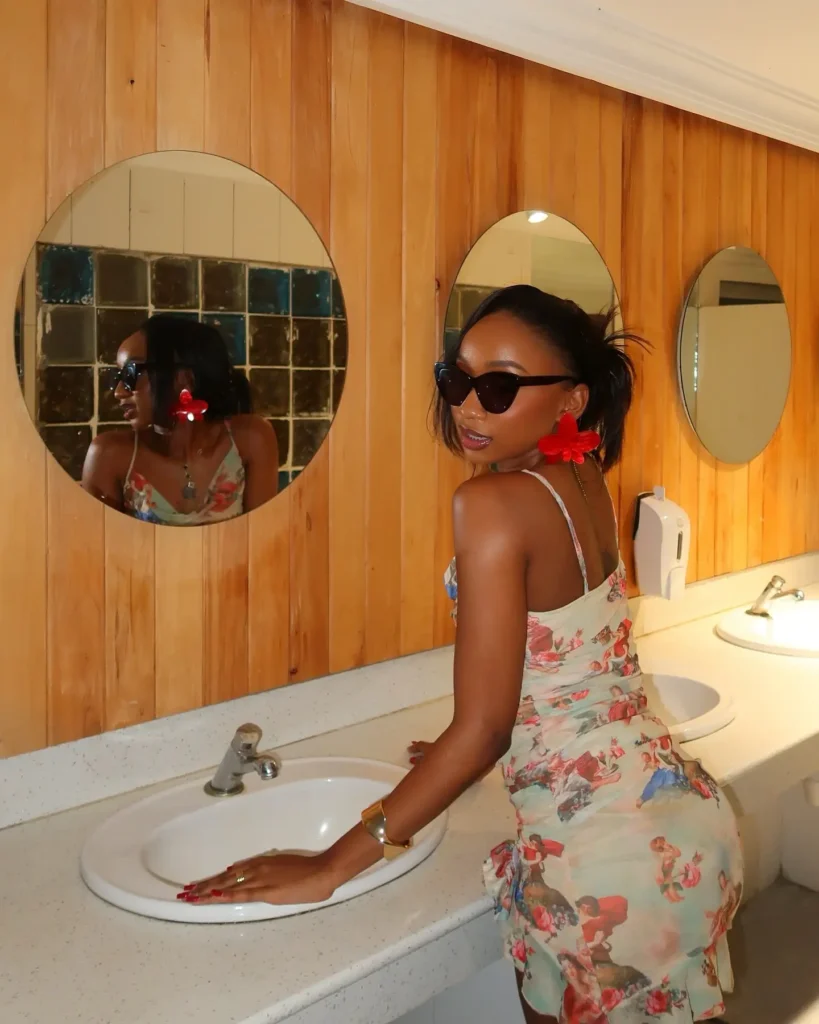
Personal Life
Ajib Gathoni’s current relationship status is not publicly confirmed. She was previously in a relationship with fellow TikToker Josh Wonder, but the couple has since parted ways. While there have been rumours about Gathoni being in a new relationship, no official details or confirmations have been provided.
Net Worth
Ajib Gathoni’s estimated net Worth is approximately $200,000. She is considered one of the wealthiest TikTok influencers in Kenya, generating income through brand partnerships, her influential presence on social media, and her clothing business, Random Wear.
LOCATION: KENYA
DANCE STYLE: AFROFUSION STREET DANCE
10) Poco Lee
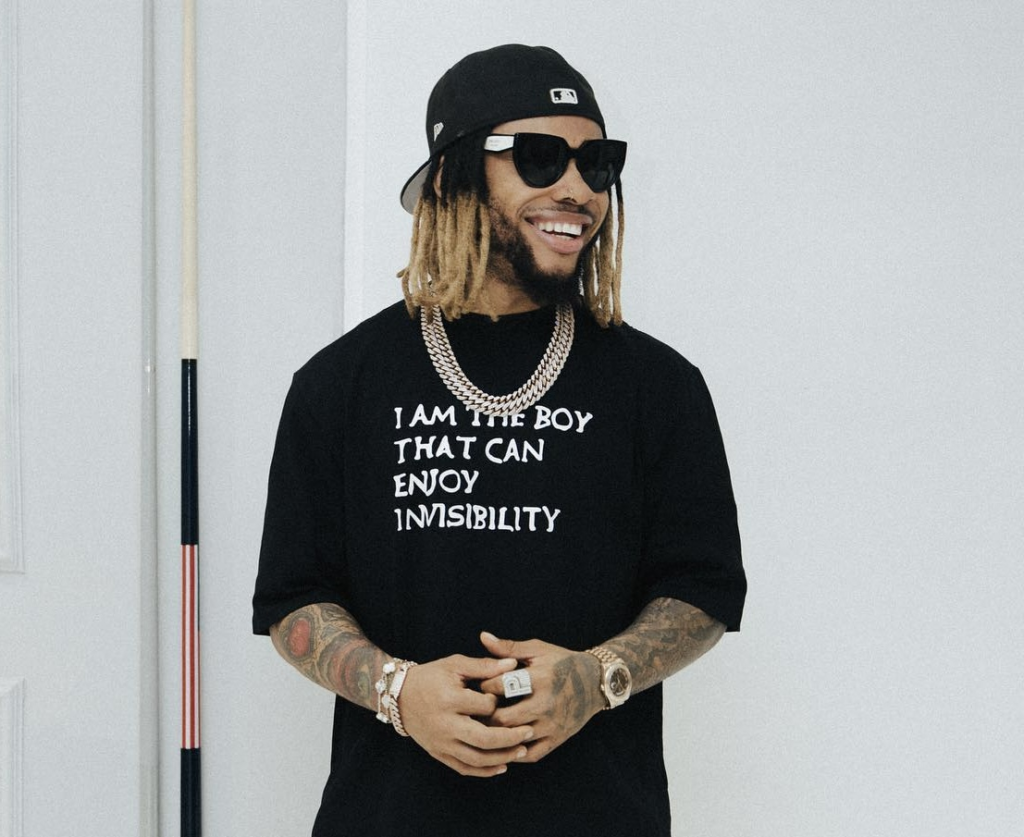
Poco Lee, whose real name is Iweh Pascal Odinaka, is a prominent Nigerian professional dancer, Choreographer, and social media personality who gained significant recognition for his energetic dance moves, particularly his Legworkand Zanku Styles. He has collaborated with numerous A-list artiste in the Nigerian music industry, Wizkid, Davido, Burna Boy, Zlatan Ibile, Naira Marley, and Tiwa Savage, appearing in their music videos and performing on stage at international events such as The One Africa Music Festival in Dubai and the O2 Arena in London.
Iweh Pascal Odinaka better known as Poco Lee is a Nigerian dancer and singer.
Poco Lee was born on the 21st of October, 1996 in Orlu, Imo State, Nigeria to Kenneth and Augustina Iweh. He is the third of five children and was brought up in Ojo, Lagos. His father died when he was ten years old, leaving his mum to fend for the five children. He attended the Nigerian Navy Primary School in Lagos, completed his secondary education at the Command Day Secondary School and then proceeded to the Lagos State University for his bachelor’s degree. Iweh got the sobriquet, “Poco Lee” in music class in junior secondary because of his small stature. The word “poco a poco” in Latin musical language means “little by little” in effecting musical transition, and friends humorously referred to him as “poco” for his small stature. Referring to how he got his name Lee said “they started calling me ‘Poco’. I added “Lee” to spice it up”. He is 5 ft 8 inches(172 cm) tall.
Career
Poco Lee started dancing as a child. He later began street dancing in Lagos with his friends. Luckily, a street dance video of him went viral, and soon he got a call from Zlatan Ibile for a collaboration. Zlatan featured Poco Lee in his hit song, Zanku, and his dance moves and performance were credited for helping the video go viral. Soon enough, other A-List artistes came calling, and Lee has since then performed on stage and videos with Davido, Burna Boy, Wizkid, Reekado Banks, Tiwa Savage, Naira Marley and Niniola. He has also performed at the One Africa Music Festival in Dubai, the O2 Arena, London, and the Valentine’s Jamboree Concert in Nairobi, Kenya. Poco Lee cites Naira Marley and Zlatan as major influences in his career. Aside his dancing, Lee is also a versed singer with many singles to his credit. He is credited with introducing Portable to Olamide, thus helping to launch his career, and also linked Black Sherif with Burna Boy.
Controversy
Poco Lee was called out in 2023 for not publicly paying tribute to late Mohbad, a close music friend whose concert Lee had headlined not long before his death. He trended on twitter over days as Nigerians on twitter, angry and frustrated over the circumstances around the singer’s death, called out his industry friends to take a more proactive and critical stance for justice.
In December 2022, Poco Lee was seen in a viral video engaged in a scuffle with policemen on the streets of Lagos. The reasons for the fracas was not disclosed and the police never issued a statement on whether anyone was arrested or not.
On Wednesday, July 13, 2023, Poco Lee, Bella Shmurda, Odumodublvck and other musicians were reportedly attacked with guns and other weapons by campus cultists at the Lagos State University, Ojo, during a homecoming concert titled “Party with Poco Lee”. This was first reported on social media and then picked up by mainstream media. The Lagos State University management however debunked these claims, and clarified that the concert management had sold tickets in excess of the capacity of the hall. Over 10,000 tickets were sold for a 2,500 capacity hall, creating chaos and frustration amongst concert-goers, who were turned away by security due to fears of a stampede, leading to arguments and the scuffles caught on video.
In 2021, Habeeb Okikiola popularly known as Portable, a Nigerian artiste called out Poco Lee in a viral video, for collecting his money and taking credit for their song. Portable later apologized to Poco Lee, saying “kindly forgive the street in me”.
Discography
Poco Lee is credited with many singles such as “Jokoriko” (2024), “Unleash” (2023), “Obirin-Ahh 2.0” (2022), “Otilo-Izz Gone” (2022), “Chop Up” (2022), “Yard” (2022), “ZaZoo Zehh” (2022), “Commot Body Jor” ft Big Wiz (2021), and “Commot Body Jor” (2021).
LOCATION: NIGERIA
DANCE STYLE: AFRODANCE
11) Courtnaé Paul

South Africa is a country that is rich in culture and talent, and dancing is one of the few things we do best as a country. Have you heard about the world-famous dancer with impressive athletic skills and numerous wins and acknowledgements? This talented individual has a playful, humorous and creative style of dance that will amaze and inspire the next generation of breakers around the country – and the rest of the world. She is a great breaker who can connect with the audience using precise facial expressions. If you’re looking for a b-girl with strength, control and balance, then look no further than our cover star, the amazing and multitalented b-girl, Courtnaé Paul. She is one of the few who represent South Africa on breaking world stages and is breaking all the barriers while representing our country all over the globe. We had a conversation with her regarding her career and everything that has been happening in the world of breakdancing. Best believe DJ Kool Herc, who is widely regarded as a pioneer and godfather of hip-hop, would be very proud of the dance moves Courtnaé Paul pulls off on stage.
Don’t be fooled by the deejaying and the music-making, Courtnaé Paul is a serious dancer. Specializing mainly in Breakdancing, which she then folds, twists, and turns to create something entirely on her own. She also incorporates influences from other styles, such as AFRO and KIZOMBA. Her background in gymnastics has also contributed to her unique approach to Breakdancing, enabling her to integrate flips and dynamic movements seamlessly.
Courtney Paul having been named African Champion has solidified herself in the world of Breakdancing as a legacy of unyielding passion and purpose.
At just 33 years old, Courtnaé’s acievements include ranking as Africa’s highest breaker in the inaugural Olympic Qualifiers in 2024 and winning first place at the 1v1 B-Girl AfroBreak International Championship last year October 2024. She prepares for competition by reading her opponents and trusting her instincts.
The Break Dancer and DJ- Whose credits includes opening for international acts like Omarion and Lil-Wayne – let TRUELOVE in on what it takes to prepare to win such a prestigious title as the AfroBreak International Champion.
”Coming home with the belt felt incredible, it was a nod that all the blood, sweat and sacrifices paid off. It also inspires me to see how much further I can take this.
”Breaking is all about being in the moment, we aren’t given a heads up on what the DJ will play. I prepare sets and combos but ultimately, it’s about feeling the music, reading my opponents and trusting my instincts Battle by Battle,” she explains.
Courtnaé has been challenging gender and national boundaries with her award-winning breakdancing career ever since her first competition at 18 years.
On how she’s seen the sport and culture progress and evolve for women in the space, the Durban-born creative says, ”When I first entered the Breaking scene female representation was scarce – there were only a handful I was aware of. The community was, and is still is, largely male dominated. However, over the past few years, we’ve seen a massive shifts globally and locally. Women have boldly stepped up and claimed their rightful place within the culture and sport.
”Platforms like the Red Bull BC One and Breaking’s Olympic debut has shone a well deserved spotlight on B-Girls. B-Girls are thriving- signing deals, touring and being celebrated. The community is becoming more inclusive, and I’m here for it!”
The 2024 Olympic games in Paris saw a heavy spotlight shone on breakdancing and women on the sport, especially with the controversial performance of Australian breakdancer Rachel ‘RayGun’ Gunn that sparked major criticism worldwide
”Breaking Olympic’s debut was bitter sweet,” Courtnaé reveals.
”While it made headlines worldwide, the focus was on controversy rather than the history-making athletes. RayGun deservedly earned her spot through her continental win, I do however think additional qualifying steps would’ve ensured consistency across board”
Courtnaé shares how breaking is the perfect balance of Arts and Athleticism were she focuses on physical development, mental fortitude and battle preparation.
Aside representing South Africa at the Red Bull BC One world finals in december last year. On her goals she’d love to achieve, Courtnaé says, ”Next, I’m targeting iconic competitions like Red Bull BC Brazil, Undisputed Masters, South Africa and a repeat win at Red Bull BC One South Africa 2025.
”But my true goal! Continuously smashing glass ceilings, empowering and spotlighting Africa Breakers, and living a happy, healthy life.”
LOCATION: SOUTH AFRICA
DANCE STYLE: BREAKDANCING
12) Lee-Shane Booysen

During a dance competition a few years ago, Lee Shane- Booysen did the unthinkable. In a moment that’s now a legend, he scaled the scaffolding at the now-defunct Bassline in New Town, Johannesburg, to the roaring delight of the crowd. Known for his gravity-defying Spider–Man’s techniques, Petersen has earned a reputation as one of the most lethal b-boy’s in the game, with a long list of accolades to back it up.
Based in Mitchell’s Plain, Cape Town, 34-year-old Lee Shane Booysen is a street dancer versed in popping, locking, house, crumping, breaking, hip hop, and contemporary.
Booysen got his start at the age of nine when he joined his sister’s church hip hop group that would perform at the church on Sundays.
Drawing on his day-to-day experiences and the people around him, Lee Shane spends 3-4 hours training on top of his daily work as a dancer in industries that range from stage to street, and from production to film. He is also inspired by dancers such as Les Twins, Parris Goebel, Anuq Wilson, Daphne Jubber, and the Jabbawokkees, as well as the dancers in Step Up 3 and Stomp the Yard.
Lee Shane has overcome financial and environmental challenges in order to become the dancer he is today, which includes achievements such as winning Red Bull Dance Your Style South Africa in 2019, as well as appearing in productions such as First Man, Raised By Wolves, Bring It On 6, House Party 5, and Honey 3.
When not dancing, Lee Shane spends his time on photography, DJing, upskilling himself, as well as community work. His ultimate goal is to create a platform for dancers to showcase and express themselves, with the aim of creating an organisation focused on improving how dance is used in the different industries.
Achievements:
Winner Dance Star South Africa 2015
Best Male Talent Dance Star Croatia 2015
Red Bull dance your style champion 2019
Bulasekele Champion 2022
Featured in movies such as Honey 3, Bring It On 6, House Party 5
Stunt work in series Raised By Wolves
Judge for the Dance Sport School League
Judge for SABOD competitions
Contributed to SABOD syllabus
Syllabus Advisor on SABOD Hip Hop Committee
LOCATION: SOUTH AFRICA
DANCE STYLE: BREAKDANCING
13) Eddie Love
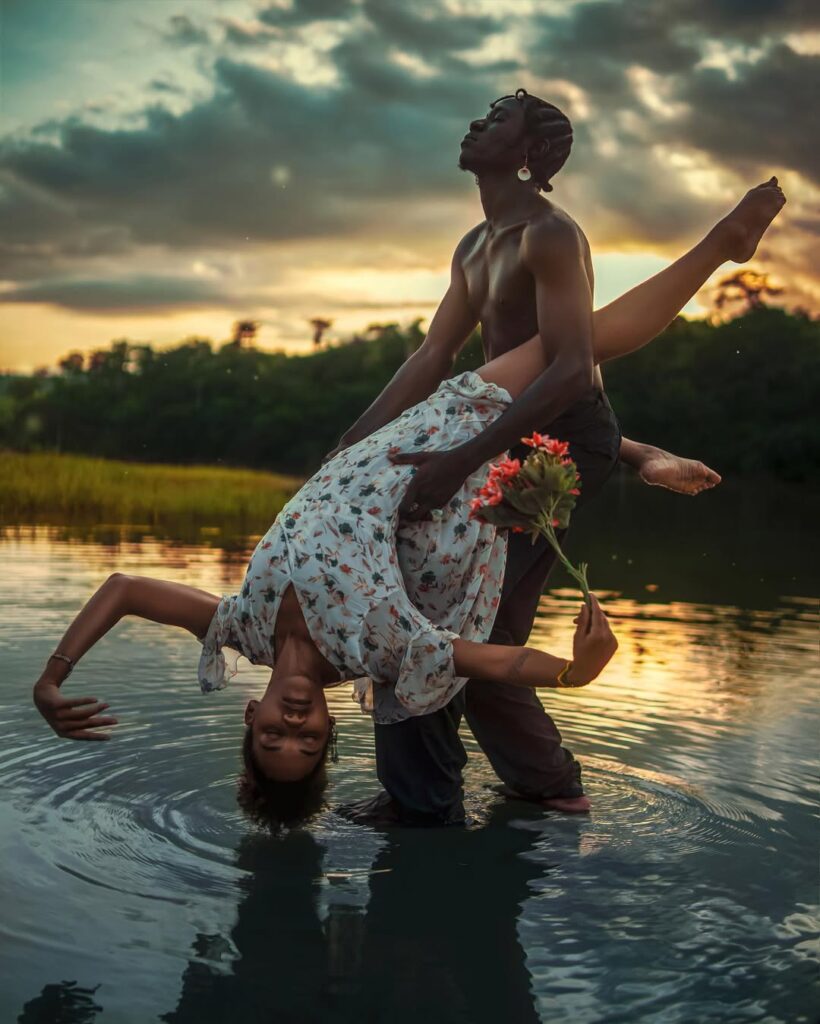
A vibrant figure in Ghanians dance movements, Eddie Love is all about pushing the boundaries of Urban Afrodance. He achieves this through his bold fusion style, impactful community workshops, and a knack for creative collaboration. Whether it’s for social media, a live jam session, or a polished, Choreographed performance, his soulful approach always delivers high impact and high energy.
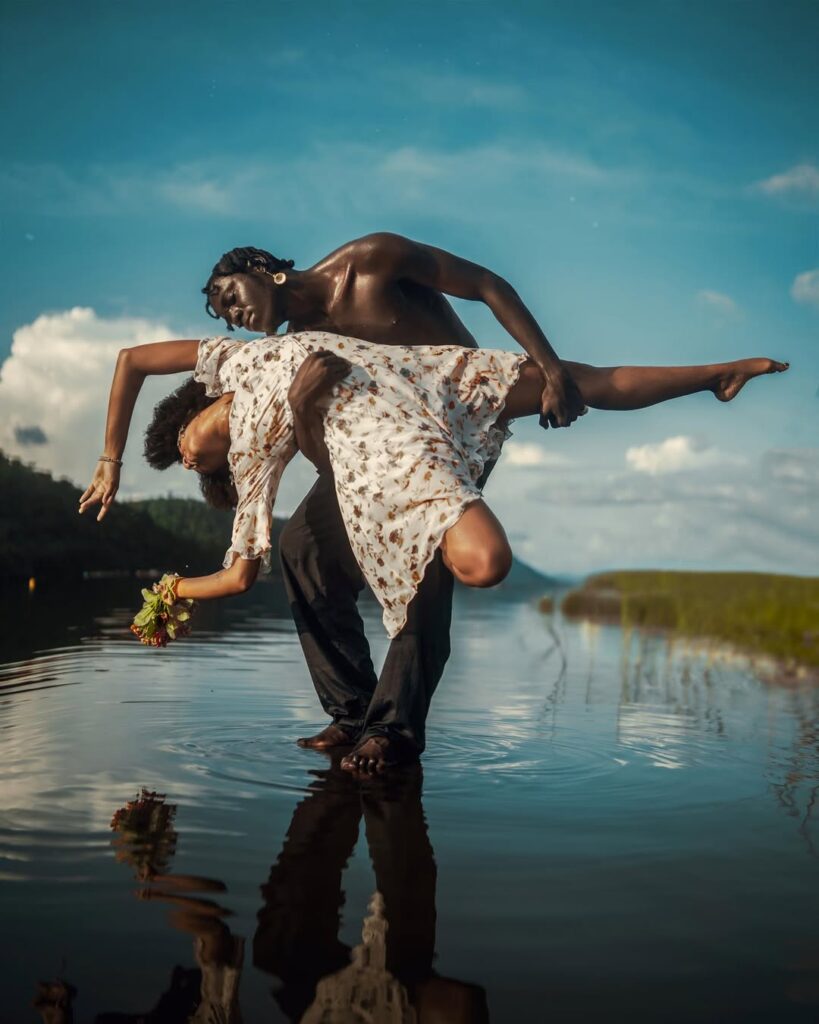
LOCATION: GHANA
DANCE STYLE: STEEZE STYLE
14) Tarryn Albert
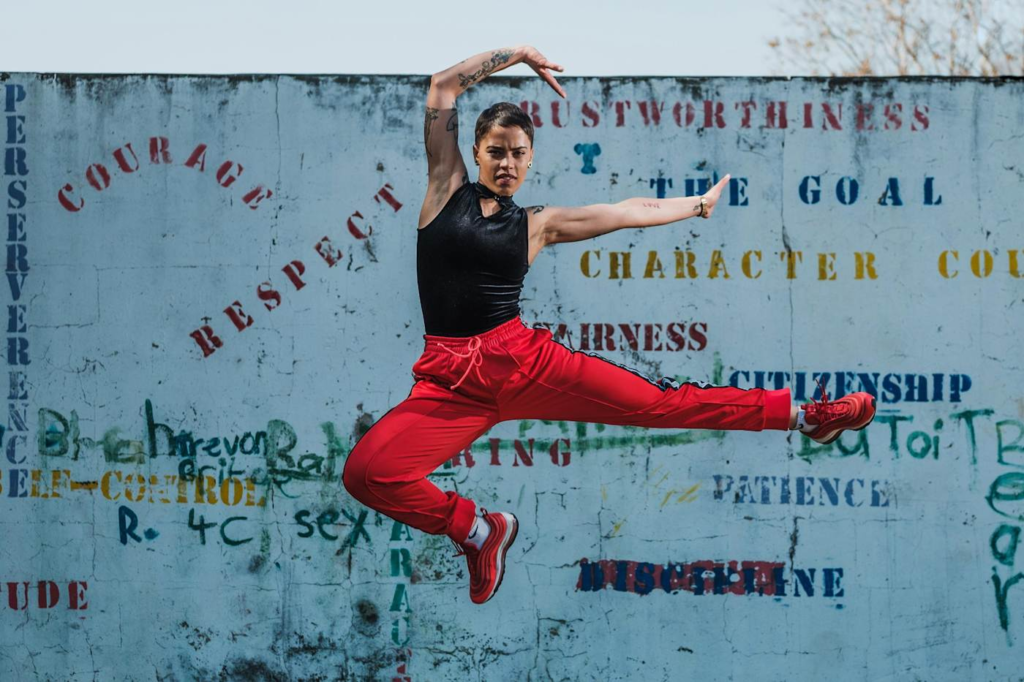
Another V.I.N.T.A.G.E crew alumna, Tarryn Alberts,has established herself as a dancer extraordinaire, fusing styles ranging from krumping to voguing to pantsula with undeniable physique, fearless energy, and streetwise elegance. Whether performing on global stages with Die Antwoord or Choreographing boundary-pushing work rooted in South African street culture. Albert has become a force in both Underground and Mainstream dance circuit.
Dancer and choreographer Tarryn Alberts reflects on her wellness journey and what it means to “Just Do It”

Leading to Nike Well Festival we chat to Tarryn Alberts a dancer and choreographer who’s talent has transcended beyond our shores. Tarryn began dancing at 9 and managed to transform her life through the art of dance. Having worked with local and international talents she has poured her skills back to her community, paying it forward by starting ‘So Dope Dance Academy’ a dance school for children in her neighbourhood. As one of Nike’s ambassadors Tarryn’s journey is a true testament to the brands’s universal phrase “Just Do It”.
Set to host their first-ever Nike Well Festival in South Africa, Nike is proud to bring Tarryn Alberts on board as one of Nike Well Collective members – her role present a crucial take on wellness and Nike’s aim to shift and bring awareness to mental health. The festival will take place on the 13th of April in Newtown, Johannesburg. Nike will be partnering with industry experts bringing holistic activations accompanied by physical therapy – from movement, mindfulness to rest. The day will be packed with trainers, wellness experts and nutritionists to guide you through your wellness journey.
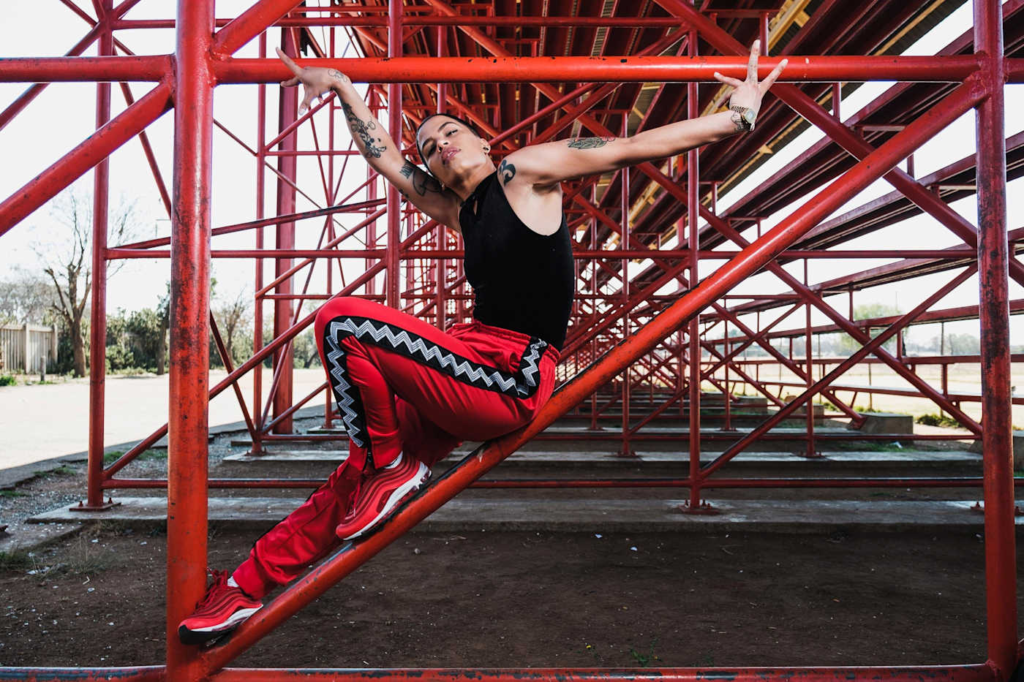
You have been dancing for as long as you’ve been able to walk and started taking lessons in different dance styles by the age of 9. At what point did you realize that there was a possibility for this passion to become a viable career choice?
At the age of 17 I’d already turned pro! Last year of high school was the worst because I just wanted to leave school already and start working, I matriculated and left home. I was in Germany doing missionary work and that’s when I decided that I’d never work a normal job in my life. So I think I always knew and always wanted this as a career.
Have your parents and family been supportive of your career from the beginning or were they hoping you would pursue other avenues? And If so, what did they want you to choose instead of dance?
My dad wanted me to become an accountant of some sort, my mama said I should go to the navy to become a marine biologist… But they always I had a passion for dance so they always supported me.
Which dancers/choreographers inspired and influenced your desire to continue dancing and to evolve as an artist?
Manthe Ribane, Lee-Che Janecke, Robyn Brophy, Lebo Otukile, Ashwin Bosman… basically everyone in my former dance cru V.I.N.T.A.G.E.
Parris Goebel, Sbu from Real Action Pantsula, Amy Rosslind, Marcus Mabie, Shami Shamrock.
When choreographing new pieces, do you envision the movements and then find the music to compliment them or do you only choreograph to music that has already been selected?
Depends on the type of work you’re booked for, mostly music is preselected. Some clients want to see you create on the spot and in most situations you are presented with music, then I create. It’s always better to get the music before so the choreo looks like magic.
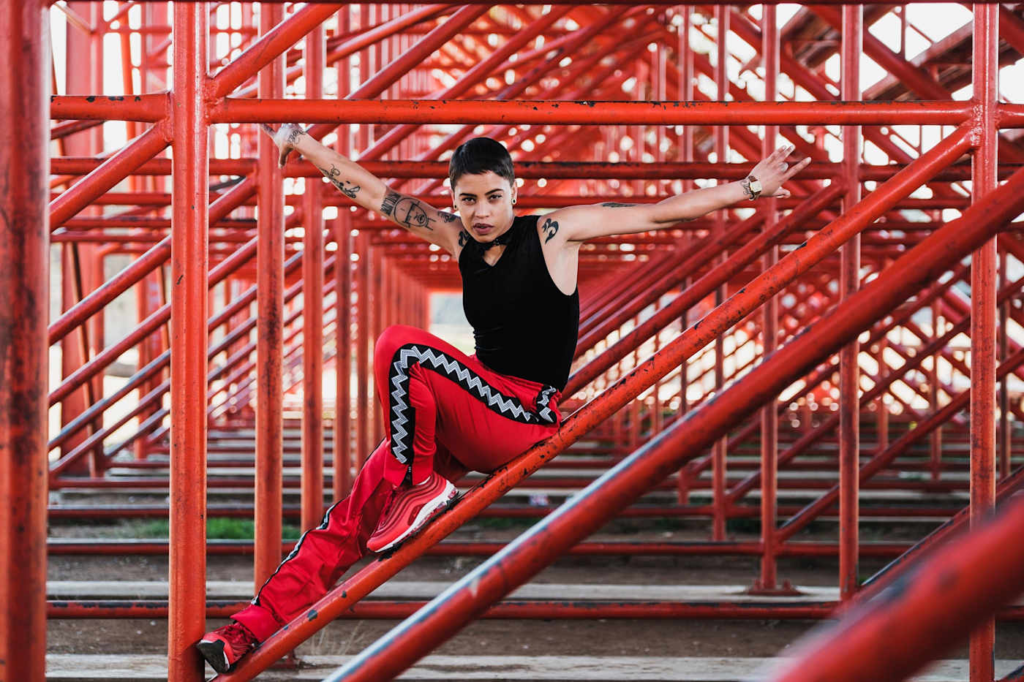
When do you feel socially connected ?
l always feel amazing when I’m connecting with friends or family, catching up with the people who matter the most to me helps improve my physical and mental health and gives me fuel to keep on moving and doing what I love, just knowing that I have an unwavering support structure is actually the key to anyone’s success.
How do you stay fit and how important is exercising as a dancer?
This is super essential to me, to be honest I know that I can be moody some days but I’ve learnt to manage it and simply through exercise, on some days I can do a 45 minute HIIT workout, and on another I will find myself running for just 20-30 minutes. I am always dancing, so whenever I’m having a tough day, I dance and I release all that bad vibrations out of my body and immediately feel the difference, So I believe any form of exercise can have a positive impact on you, which in-turn can have a positive impact on your life and the way you see your success.
What is you secret in keeping a balanced nutrition?
I really love cooking, I love food and think its so important to have a healthy relationship with what you put in your body, because I’m so active I have to energise my body so I dont crash, I’m not fan of restricted diets and I don’t deprive myself of anything too. Food is medicine and we shouldn’t see it as the enemy but rather understand that it heals the body in so many ways.
When you find time to reset and re-charge do you add sleep in your routine?
Sleep is not for the weak, but for those who truly love themselves and understand that recharging yourself is what will keep you performing at the highest level in whatever you do at all times. I found it to be quite rough trying to find the balance, as a business owner I will be working around the clock especially when prepping for tour, shows or events, it is mentally challenging which is very exhausting more than being physically fatigued but you have to know when to put your head down and your feet up and rest, play games with your children or family, recover from injury or have short rest periods from work.

How do you approach mindfulness?
What does that look like, well consider what you are thinking about right now and how you are feeling, the more you tap into your own thoughts the more you may become aware of how you react to stressful situations, reflecting is good and can help you process life each day as it comes. I love doing breathing exercises because this is what calms me especially before going on stage, this process gives me strength and controls my mind before any doubt can set in.
What role do you see brands like Nike playing in promoting holistic wellness for women, and how do you hope to contribute to this mission as part of the Nike Collective?
Immersive wellness experiences are in high demand, people are always finding different ways, bridging self-care and social interactions. Nike Well Collective is definitely here to set the tone as to connecting with real people, I wish to bring my raw talent and movement to inspire our community. We are beyond perfect bodies and the hippie kumba ya but actually this experience will allow you to be yourself, accepted and hopefully change your view on what you thought the concept of “wellness” means to you and how you can now impact your life moving into the future.
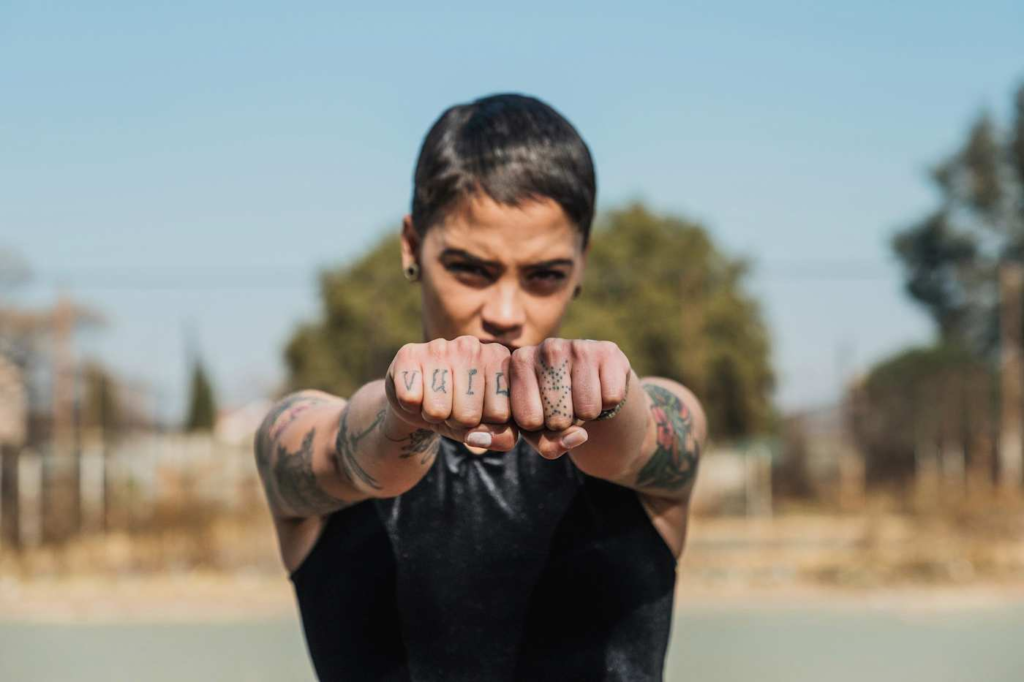
What self-care practices do you integrate into your routine, especially during busy or stressful times?
I really love meditation, and this self-care practice is at the top of my list, I always make sure I rest/sleep when I want to so I’m feeling fresh and ready to give my best! Always! I do have a hectic routine leading up to any show or competition but meditation helps me control the way I think and this allows me to control my mind and body so that whenever I’m performing I feel happy and not disappointed or afraid to take on the next experience.
LOCATION: SOUTH AFRICA
DANCE STYLE: KRUMPING, WAACKING, VOGUING
15) Litchi Hov

Litchi Hov began his journey as a member of the electrifying V.I.N.T.A.G.E crew, a dance collective known for it’s bold style and theatrical flair. He rose through the ranks of South Africa’s dance scene by participating in major television productions, such as Pop Idols, and quickly built a reputation for his sharp choreography and stage direction. Over the years, he’s crafted standout routines for artists such as Sho Madjozi and Uncle Waffles, and now stands at the forefront of global Pop choreography as the creative force behind Tyla’s viral visual and performances.
Lee-ché Janecke, fondly known as Litchi Hov, is the force behind Tyla’s captivating dance moves.
Tyla has gone viral for her effortless dance moves, such as her waist shaking and water-throwing while winding. But who is the creative force behind these moves?
Tyla’s viral dance moves showcase not only her effortless talent but also the creativity and expertise of her choreographer, Lee-ché Janecke, known professionally as Litchi Hov.
Born to a ballerina mother and a break dancer father, Janecke’s passion for dance was ignited from a young age.
His love for dance is more than just a passion; it is a career-defining choice. After matric, he was offered a scholarship to pursue an accounting qualification, but he turned it down to focus on dance.
This bold decision has led him to where he is today as one of South Africa’s most sought-after choreographers and creative directors.
Rising to fame
Janecke’s dance journey took off as a member of the popular Vintage Dance Cru. The group gained a massive following in South Africa, particularly for their unique style that blended waacking and voguing.
As an openly gay dance crew, they broke barriers and brought something fresh to the Mzansi dance industry.
Before his work with Tyla, the international choreographer also showcased his skills in the South African reality dance competition “Step Up or Step Out”.
Although he did not win, the experience left a lasting mark on his career, solidifying his reputation as a talented dancer and choreographer. His collaboration with Tyla has been a game-changer, with his choreography playing a significant role in her success.
He is not only Tyla’s choreographer but also the creative director behind her hit music video “Getting Late”, one of the songs that helped launch her career.
As an international choreographer and creative director, his work continues to inspire and captivate audiences worldwide.Play Video
A lasting impact on South African dance
His impressive resume extends beyond Tyla, with notable collaborations with South African artists such as Mafikizolo, Sho Madjozi, Shekhinah and amapiano sensation Uncle Waffles.
Janecke has worked on high-profile projects like the music videos for Mafikizolo’s “Khona” and Shekhinah’s “Please Mr”. He has also choreographed for Uncle Waffle’s song “Wadibusa”.
In addition to his work in the music industry, the Cape Town-born choreographer has lent his creative expertise to the Feather Awards, a prominent South African LGBTQ+ awards ceremony that celebrates excellence and diversity in the community.
The talented dancer was also the creative genius behind Tyla’s Coachella dance moves for both days of her performances. After they wrapped up Coachella, Janecke took to his Instagram to reflect on his work with the team.
“Still decompressing and taking it all in. This is another first for us as South Africans on the world stage, allowing our stories to be told through our lens. I’m a dreamer, but lately, God’s realities for me outweigh even those glorious dreams,” he wrote.
As a creative director, he brings the vision to life through innovative and engaging productions. With his unique style and creative flair, Janecke continues to make waves in the entertainment industry.
As Tyla’s choreographer and creative director, he has played a huge role in shaping her artistic identity and propelling her to global stardom.
Together, they are taking South Africa to new heights, proudly representing the country’s vibrant culture and dance heritage on the world stage.
Their passion, creativity, and dedication to their craft are a true reflection of the incredible talent emerging from South Africa, and their partnership is a shining example of what is possible when creativity and passion come together.
Tyla scores two MTV VMA nods for best choreography and Afrobeats
LOCATION: SOUTH AFRICA
DANCE STYLE: WAACKING, VOGUING.

